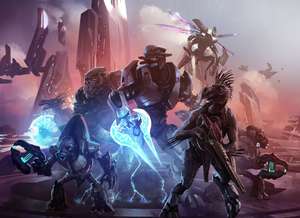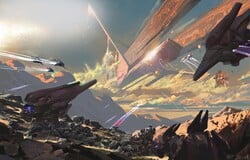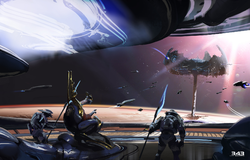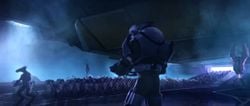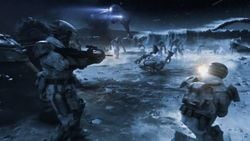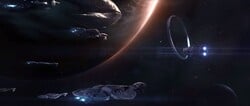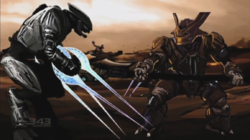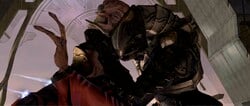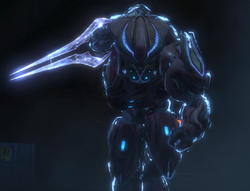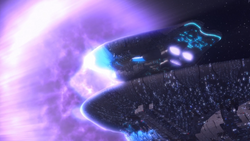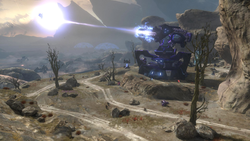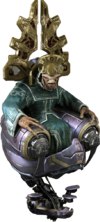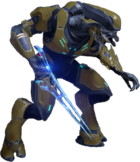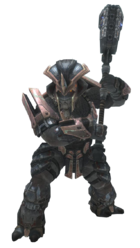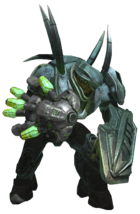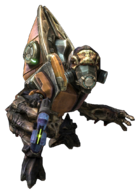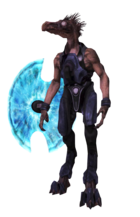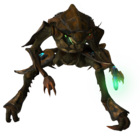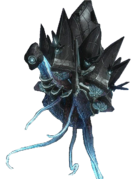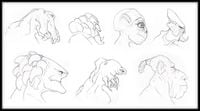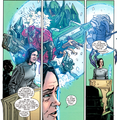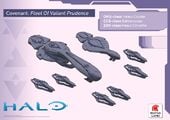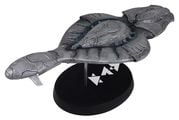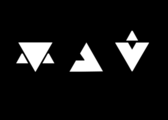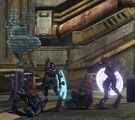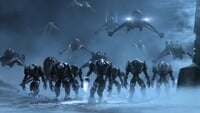Covenant: Difference between revisions
From Halopedia, the Halo wiki
BaconShelf (talk | contribs) m (→Gallery) |
CMDR RileySV (talk | contribs) |
||
| (66 intermediate revisions by 20 users not shown) | |||
| Line 26: | Line 26: | ||
*[[High Charity]]{{Ref/Reuse|Enc22pg192}} | *[[High Charity]]{{Ref/Reuse|Enc22pg192}} | ||
|anthem= | |anthem= | ||
|language=[[Sangheili (language)|Sangheili]] | |language=[[Sangheili (language)|Sangheili]]{{Ref/Site|Id=wp cov|D=01|M=6|Y=2020|URL=https://www.halowaypoint.com/en-us/universe/factions/covenant|Site=Halo Waypoint|Section=Universe, Factions|Page=Covenant|LocalArchive=https://archives.halopedia.org/waypoint/www.halowaypoint.com/en-us/universe/factions/covenant.html}} | ||
|script=Syllabary and logograms | |script=Syllabary and logograms | ||
|religion=[[Covenant religion]] | |religion=[[Covenant religion]] | ||
|techlevel= | |techlevel= | ||
|notable=[[History of the Covenant]] | |notable=[[History of the Covenant]] | ||
|formed=[[852 BCE]]: [[Ages of Reconciliation|First Age of Reconciliation]]<ref name="Ency1">'''[[Halo Encyclopedia (2009 edition)]]''', ''page 30''</ref> | |formed=[[852 BCE]]: [[Ages of Reconciliation|First Age of Reconciliation]]<ref name="Ency1">'''[[Halo Encyclopedia (2009 edition)]]''', ''page 30''</ref> | ||
| Line 42: | Line 42: | ||
Ruled by the [[High Prophet of Truth]] along with [[Hierarch|High Prophets]] [[Prophet of Mercy|Mercy]] and [[Prophet of Regret|Regret]] in [[2525]], the Covenant waged a [[Human-Covenant War|genocidal campaign]] against [[human]]ity until they were defeated in [[2552#December|December 2552]]. Despite being one of the most powerful military forces in the known Milky Way galaxy at the time, [[Great Schism|internal conflict]] combined with stubborn human resistance were formidable enough to shatter the bonds that held the empire together. This internal conflict broke the Covenant in two, [[Covenant separatists|forcing out]] the Sangheili species.<ref>[https://www.halowaypoint.com/en-us/universe/species/jiralhanae  Canon Fodder] - "The resulting conflict would be called the Great Schism, and it would divide the Covenant into two, ultimately forcing the Sangheili out."</ref> | Ruled by the [[High Prophet of Truth]] along with [[Hierarch|High Prophets]] [[Prophet of Mercy|Mercy]] and [[Prophet of Regret|Regret]] in [[2525]], the Covenant waged a [[Human-Covenant War|genocidal campaign]] against [[human]]ity until they were defeated in [[2552#December|December 2552]]. Despite being one of the most powerful military forces in the known Milky Way galaxy at the time, [[Great Schism|internal conflict]] combined with stubborn human resistance were formidable enough to shatter the bonds that held the empire together. This internal conflict broke the Covenant in two, [[Covenant separatists|forcing out]] the Sangheili species.<ref>[https://www.halowaypoint.com/en-us/universe/species/jiralhanae  Canon Fodder] - "The resulting conflict would be called the Great Schism, and it would divide the Covenant into two, ultimately forcing the Sangheili out."</ref> | ||
Following the Covenant Empire's end at the [[Battle of the Citadel]],{{Ref/Reuse|Destroyed1}}{{Ref/Reuse|Destroyed4}} a small remnant of surviving [[Covenant | Following the Covenant Empire's end at the [[Battle of the Citadel]],{{Ref/Reuse|Destroyed1}}{{Ref/Reuse|Destroyed4}} a small remnant of surviving [[Dhas Bhasvod's Covenant|loyalists]] would reemerge years later,{{Ref/Reuse|Sacrifice}}{{Ref/Reuse|DW}} and a number of [[Covenant remnants|new factions]] were created by the fallen empire's former subject species after the conclusion of the war.<ref name="h4guide">[http://www.halowaypoint.com/en-US/halo4guide ''Halo 4 Interactive Guide'']</ref> Some of the [[Covenant separatists|separatists]] sought to recreate the Covenant entirely under Sangheili rule, free from San'Shyuum influence.<ref>'''[https://www.halowaypoint.com/en-us/news/canon-fodder-lore-of-the-rings Halo Waypoint: 'Canon Fodder' - Lore of the Rings]''' - "many others had become enamored with the idea of bringing the Covenant empire under complete Sangheili rule, quickly scrambling to grab power wherever they could."</ref><ref>'''[[Halo: Glasslands]]''', ''page 20''</ref> One notable splinter faction of Sangheili self-proclaimed to be a [[Jul 'Mdama's Covenant|new "Covenant"]] was created by [[Jul 'Mdama]], being one of several factions which maintain some tenets of the fallen Covenant's [[Covenant religion|religion]].<ref name="escalation5">''[[Halo: Escalation Issue 5]]'' "What does it mean to be 'Covenant' today? A hundred warlords claim they rule the Covenant, but each of them leads only a small faction."</ref> Other hostile factions that utilize assets from the former Covenant Empire include [[Merg Vol's Covenant|Merg Vol's faction]], [[Sali 'Nyon's Covenant|Sali 'Nyon's faction]], [[Vata 'Gajat's mercenary group|Vata 'Gajat's faction]] and the [[Banished]]. | ||
==History== | ==History== | ||
{{Main|History of the Covenant}} | {{Main|History of the Covenant}} | ||
| Line 53: | Line 53: | ||
:::::::''The Seventh Age: Journey and Salvation.''|Maccabeus and the Jiralhanae of the ''Rapid Conversion''.<ref>'''[[Halo: Contact Harvest]]''' ''page 196-197''</ref>}} | :::::::''The Seventh Age: Journey and Salvation.''|Maccabeus and the Jiralhanae of the ''Rapid Conversion''.<ref>'''[[Halo: Contact Harvest]]''' ''page 196-197''</ref>}} | ||
===Founding=== | |||
[[File:HM WarOfBeginnings.jpg|thumb|right|250px|The [[Desecration of Ulgethon]].]] | |||
{{Main|War of Beginnings}} | {{Main|War of Beginnings}} | ||
At some point before the San'Shyuum encountered the Sangheili, the [[Huragok]] were found by the San'Shyuum in various [[M-series facility|M-series facilities]].<ref name="best">'''Halo 3''', ''[[Bestiarum]]''</ref> In [[938 BCE]],{{Ref/Reuse|Ency1}} the San'Shyuum [[Reformists]], aboard the [[Forerunner Dreadnought]] and the planetoid that would come to be known as High Charity, entered a Sangheili-occupied system that led to first contact between the two alien species. The San'Shyuum, who came to Sanghelios in order to claim and study the rich abundance of Forerunner artifacts left behind,<ref name="Ency114">'''[[Halo Encyclopedia (2009 edition)]]''' ''page 114''</ref> soon found themselves sharing different ideologies of how such relics should be treated, which quickly devolved into conflict between the San'Shyuum and the Sangheili. | At some point before the San'Shyuum encountered the Sangheili, the [[Huragok]] were found by the San'Shyuum in various [[M-series facility|M-series facilities]].<ref name="best">'''Halo 3''', ''[[Bestiarum]]''</ref> In [[938 BCE]],{{Ref/Reuse|Ency1}} the San'Shyuum [[Reformists]], aboard the [[Forerunner Dreadnought]] and the planetoid that would come to be known as High Charity, entered a Sangheili-occupied system that led to first contact between the two alien species. The San'Shyuum, who came to Sanghelios in order to claim and study the rich abundance of Forerunner artifacts left behind,<ref name="Ency114">'''[[Halo Encyclopedia (2009 edition)]]''' ''page 114''</ref> soon found themselves sharing different ideologies of how such relics should be treated, which quickly devolved into conflict between the San'Shyuum and the Sangheili. | ||
| Line 67: | Line 65: | ||
With a proud tradition as warriors, the Sangheili held great respect for a worthy adversary, and after their surrender, the San'Shyuum sought a burgeoning Covenant of the two races. In 852 BCE a tentative truce was worked out between the two species through the Sangheili leader, [[Pelahsar the Strident]], and the San'Shyuum [[Breaking Shadow]]. The two agreed to forgive the past crimes of their species and began efforts towards an alliance.<ref>'''[[Halo Mythos]]''', ''page 39''</ref> This eventually came about with the signing of the [[Writ of Union]], a treaty that ended the conflict and brought about peace between the two factions.{{Ref/Reuse|Ency1}} | With a proud tradition as warriors, the Sangheili held great respect for a worthy adversary, and after their surrender, the San'Shyuum sought a burgeoning Covenant of the two races. In 852 BCE a tentative truce was worked out between the two species through the Sangheili leader, [[Pelahsar the Strident]], and the San'Shyuum [[Breaking Shadow]]. The two agreed to forgive the past crimes of their species and began efforts towards an alliance.<ref>'''[[Halo Mythos]]''', ''page 39''</ref> This eventually came about with the signing of the [[Writ of Union]], a treaty that ended the conflict and brought about peace between the two factions.{{Ref/Reuse|Ency1}} | ||
[[File:HM-HighCharityBC.png|left|250px|thumb|The construction of ''High Charity''.]] | |||
===Early history=== | |||
The conclusion of the conflict marked the [[Ages of Reconciliation|First Age of Reconciliation]].{{Ref/Novel|Id=bc15|BC|Chapter=15}} During this Age and in the year [[851 BCE]],{{Ref/Novel|Id=bc1|BC|Chapter=1}} a rebellion would break out led by [[Ussa 'Xellus]] known as the [[Rending]].{{Ref/Reuse|bc15}}{{Ref/Book|Id=enc22pg192|Enc22|Page=192}} As well, ''High Charity'' would begin construction this year.{{Ref/Reuse|bc1}} At this time, much of the Covenant's civil and military infrastructure was not formalized, though enough was in place to allow the first truly colloborative project between the founding species to complete; the multi-role {{Pattern|Useumru|voidpiercer}}.{{Ref/Site|Id=CFEklund|URL=https://www.halowaypoint.com/news/canon-fodder-eklunds-ensemble|Site=Halo Waypoint|Page=Canon Fodder - Eklund's Ensemble|D=20|M=07|Y=2022}} One of the newly formed fleets of the Covenant{{Ref/Reuse|enc22pg192}} would make use of the ''Useumru'' during the attack on the [[Ussans]] at [[The Refuge]].{{Ref/Novel|BC|Book cover}} As part of the aftermath of the formation of the Covenant, a version of the [[Swords of Sanghelios]] had formed to help end the last opposition to the Writ of Union.{{Ref/Site|Id=hwp sangheili|D=01|M=6|Y=2020|URL=https://www.halowaypoint.com/en-us/universe/factions/swords-of-sanghelios|Site=Halo Waypoint|Section=Universe, Factions|Page=Swords of Sanghelios|LocalArchive=https://archives.halopedia.org/waypoint/www.halowaypoint.com/en-us/universe/factions/swords-of-sanghelios.html}} | |||
''High Charity'' would finish construction roughly 60 years later in [[791 BCE]].{{Ref/Book|Enc22|Page=226}} The First Age of Reconciliation would end at some point after this and be followed by the [[Ages of Discovery|First Age of Discovery]].{{Ref/Reuse|bc15}} | |||
In [[784 BCE]], the [[Lekgolo]] were encountered by the Covenant on [[Rentus]], a [[natural satellite]] of the Lekgolo homeworld of [[Te]].<ref>[https://www.halowaypoint.com/en-us/forums/db05ce78845f4120b062c50816008e5d/topics/catalog-interaction/4c3e1c6f-6519-4ee0-83a4-4bac13bf07a3/posts?page=74#post732 '''Halo Waypoint''': ''Catalog Interaction'' (post 2988575)]</ref> Upon the discovery that many of the Lekgolo worm colonies had literally devoured Forerunner artifacts and installations, [[Taming of the Lekgolo|a large-scale military conflict]] began. The Lekgolo initially proved difficult to defeat because of their ability to combine into the powerful [[Mgalekgolo]], however due in part to their superior spaceship technology, the Covenant were able to ally with the useful Lekgolo and the species was indoctrinated into the hegemony.<ref>'''Halo Encyclopedia: The Definitive Guide to the Halo Universe''', ''page 114''</ref>{{Ref/Novel|CH|Chapter=16}} | |||
The early ages of the Covenant were defined by several civil wars as the polity took shape through slaughter and submission. This included the [[Ages of Conflict|Third Age of Conflict]].{{Ref/Book|Enc22|Page=265}} | |||
{{clear}} | |||
===Contact and conversion=== | ===Contact and conversion=== | ||
In the year [[1112]], the Covenant discovered the [[Yanme'e]], an insectoid race with an interplanetary civilization. First contact was violent as both sides took heavy casualties. However, it was the Covenant who fared worse in these battles. Ultimately, the San'Shyuum discovered a way to communicate with the Yanme'e, and subsequently incorporated them into the Covenant by way of a treaty.<ref>'''Halo Encyclopedia: The Definitive Guide to the Halo Universe''', ''pages 148-149''</ref> | |||
[[File:H2A Terminals - | |||
[[File:H2A Terminals - Unggoy join Covenant.jpg|right|thumb|250px|Unggoy join the Covenant.]] | |||
In [[1342]], the Covenant arrived in the [[Y'Deio system]] and encountered the [[Kig-Yar]]. Both Kig-Yar [[piracy|pirate]]s and [[Eayn]]'s military joined forces in an attempt to fend off the Covenant military juggernaut. The war between the Covenant and Kig-Yar forces culminated in sieges of redoubts on the [[asteroid]]s surrounding their world,<ref>'''Halo Encyclopedia: The Definitive Guide to the Halo Universe''', ''page 155''</ref> however the asteroids proved to be beneficial to the Kig-Yar. It was difficult for the larger Covenant ships to maneuver through Y'Deio's abnormally dense asteroid belt, while Kig-Yar forces could use the asteroids for hiding.<ref>'''Halo: The Cole Protocol''', ''page 157''</ref> Eventually, peace was reached between the Kig-Yar and Covenant. The Kig-Yar joined the Covenant, essentially as mercenaries, and earned commissions from the [[Ministry of Tranquility]] to engage in the services of the Covenant.<ref>'''Halo Encyclopedia: The Definitive Guide to the Halo Universe''', ''page 121''</ref> | |||
The [[Unggoy]] were easily inducted into the Covenant as a labourer race in [[2142]].{{Ref/Book|Id=EncC4|Enc|Section=Chapter Four: The Covenant - The History of the Covenant|Page=115 (2009 edition); 121 (2011 edition)}}{{Ref/Game|H3|Part=Halo 3 Limited Edition|PartText=Limited Edition|Bestiarum}}{{Ref/Book|Id=EncC1|Enc|Section=Chapter One: Timeline, Galactic Rebirth and the Covenant - Human Expansion and Colonization|Page=32}}{{Ref/Game|Id=H2AT10|H2A|Terminal (Halo 2: Anniversary)|Terminals|Detail=Covenant Record: Unggoy Rebellion}} Around 10 years later in [[2152]],{{Ref/Book|Id=Enc22P245|Enc22|Page=245}} the Arbiter [[Fal 'Chavamee]] would defy the Covenant and it's religion, resulting in the title of Arbiter becoming negative.{{Ref/Film|Id=Duel|HLeg|Episode=The Duel}} | |||
Centuries prior to 2560, the Covenant encountered and [[Extermination of Karava|exterminated]] a sentient species on [[Karava]].{{Ref/Book|Enc22|Page=289}} In between the Ages of Conversion and Ages of Doubt, members of the Covenant grappled with internecine conflict.{{Ref/Reuse|ency31}} | |||
===Later years=== | |||
In [[2462]], the [[Unggoy Rebellion]] began after the [[Ministry of Concert]] refused to punish Kig-Yar [[shipmaster]]s that were rendering Unggoy populations infertile as petty revenge for the displacement of Kig-Yar nests. The Unggoy proved to be vicious, determined and competent fighters and an Arbiter was ultimately needed to quell the rebellion. This Arbiter ordered the glassing of [[Balaho]], and in response the rebellion ended before much damage could be done, leaving the planet's surface intact for the most part. The Sangheili integrated the Unggoy into formerly Sangheili-only units and armed them with Covenant weaponry.<ref>'''Halo: Contact Harvest''', ''pages 150-152''</ref> | |||
The [[Jiralhanae]] were fighting a civil war on [[Doisac|their homeworld]] when they were discovered in [[2492]]. While some gladly joined the Covenant, others were unwilling at first. Nonetheless, they were quickly defeated and absorbed into the Covenant.<ref>'''Halo Encyclopedia: The Definitive Guide to the Halo Universe''', ''page 115''</ref> One of the more pro-Covenant factions was led by [[Maccabeus]], whose zeal and devotion led him to be the first Jiralhanae to captain a [[Rapid Conversion|Covenant ship]].{{Ref/Book|Enc22|Page=254}} | |||
===War | ===War of Annihilation=== | ||
{{Main|Human-Covenant War}} | {{Main|Human-Covenant War}} | ||
{{Quote|Your destruction is the will of the Gods... and we are their instrument.|The Covenant's first transmission to humanity, after the [[glassing]] of [[Harvest]].<ref>'''Halo: The Fall of Reach''', ''pages 96-98''</ref>}} | {{Quote|Your destruction is the will of the Gods... and we are their instrument.|The Covenant's first transmission to humanity, after the [[glassing]] of [[Harvest]].<ref>'''Halo: The Fall of Reach''', ''pages 96-98''</ref>}} | ||
[[File: | [[File:HW Trailer Battle.jpg|left|thumb|250px|The Covenant [[Harvest campaign|engage]] humanity at [[Harvest]].]] | ||
During the 23rd Age of Doubt, the Covenant [[First Battle of Harvest|encountered]] humanity for the first time on the planet [[Harvest]]. While many within the Covenant's leadership felt that this new race would make a welcome addition to the hegemony, the newly-appointed [[Hierarchs]] of the Covenant—[[Prophet of Truth|Truth]], [[Prophet of Mercy|Mercy]], and [[Prophet of Regret|Regret]]—had other plans. The Hierarchs were aware of humanity's status as the Forerunners' chosen inheritors, and knew that revealing this information to the Covenant would lead to the Covenant falling into chaos.<ref>'''Halo: Contact Harvest''', ''page 275''</ref> Greater than the cultural significance of the invalidation of the Great Journey, the leading San'Shyuum knew the truth about the Forerunners would lead to the loss of their personal power.<ref>'''Halo: Contact Harvest''', ''page 385''</ref> As a result, spurred on by a violent incident following the first human-Covenant contact, the Hierarchs declared humanity an affront to the gods and demanded that their entire species was to be exterminated. This decision would spark a war that ultimately would crumble the very foundation of the Covenant's religious and political alliances.<ref>'''Halo: Contact Harvest''' ''page 143''</ref> | During the 23rd Age of Doubt, the Covenant [[First Battle of Harvest|encountered]] humanity for the first time on the planet [[Harvest]]. While many within the Covenant's leadership felt that this new race would make a welcome addition to the hegemony, the newly-appointed [[Hierarchs]] of the Covenant—[[Prophet of Truth|Truth]], [[Prophet of Mercy|Mercy]], and [[Prophet of Regret|Regret]]—had other plans. The Hierarchs were aware of humanity's status as the Forerunners' chosen inheritors, and knew that revealing this information to the Covenant would lead to the Covenant falling into chaos.<ref>'''Halo: Contact Harvest''', ''page 275''</ref> Greater than the cultural significance of the invalidation of the Great Journey, the leading San'Shyuum knew the truth about the Forerunners would lead to the loss of their personal power.<ref>'''Halo: Contact Harvest''', ''page 385''</ref> As a result, spurred on by a violent incident following the first human-Covenant contact, the Hierarchs declared humanity an affront to the gods and demanded that their entire species was to be exterminated. This decision would spark a war that ultimately would crumble the very foundation of the Covenant's religious and political alliances.<ref>'''Halo: Contact Harvest''' ''page 143''</ref> | ||
Early in the war, a growing faction of Elites who disagreed with the Prophets were formed. This group took control of a Forerunner facility near the remnants of a massive space installation and were thought to have in their possession a key to activate Forerunner technology. The Arbiter of the time, [[Ripa 'Moramee]], would put an end to the faction but did not retrieve the key.{{Ref/Generic|[[Halo Wars Timeline Events]]|Excerpt from The Punished Deeds, Vol. III}} | |||
At some point prior to [[2531]], heretical uprisings took place on several [[Covenant worlds]] in response to ''High Charity''{{'}}s demands for new tithes. These would be put down in part by [[Avitus]].{{Ref/Book|Enc22|Page=254}} | |||
After | After decades of struggle, some Sangheili within the Covenant began to question why humanity was not offered a chance to join the Covenant as other races had.<ref name="convo">'''Halo 2''', ''[[Conversations from the Universe]]''</ref> Despite their losses, humanity proved a determined and brave enemy. They were especially troubled by their soldiers called [[Spartan]]s, who were more than a match for them in battles and often killed thousands of Covenant by themselves.<ref>'''Halo: Ghosts of Onyx''', ''page 349''</ref> While these idle heresies did not halt the Covenant's military progress, doubt began to surface as to the wisdom of the Prophets' ultimate goals; a doubt that was carefully observed by the spies of the Hierarchs.{{Ref/Reuse|convo}} | ||
Another major break-off faction known as the [[Banished]] was created by [[Jiralhanae Stalker]] [[Atriox]] as a result of his disgruntlement with the Prophets' rule, and proceeded to persistently raid Covenant supplies for years while the Human-Covenant War raged on.{{Ref/Level|HW2|[[A New Enemy]]}} | |||
[[File:H2A Screenshot ParticularJustice Autumn.jpg|thumb|right|250px|The Fleet of Particular Justice along with the ''Pillar of Autumn'' at Installation 04.]] | |||
After the UNSC stronghold [[Reach]] fell to the Covenant in [[2552]], they made a discovery of tremendous significance: a single UNSC vessel, the [[UNSC Pillar of Autumn|''Pillar of Autumn'']], had made a supposedly blind jump away from the battle, inadvertently leading the [[Fleet of Particular Justice|pursuing Covenant fleet]] to the location of [[Installation 04|one]] of the seven Halo rings.{{Ref/Level|CE|[[The Pillar of Autumn (Halo: Combat Evolved level)|The Pillar of Autumn]]}} The Covenant's celebration following the discovery of this prized relic was short-lived, however, as a small group of UNSC forces—among them the fearsome, enigmatic soldier known to Covenant forces as "[[John-117|the Demon]]"—managed to destroy the ring by detonating the ''Pillar of Autumn''{{'}}s [[fusion drive|fusion engines]].{{Ref/Level|CE|[[The Maw]]}} [[Thel 'Vadam]]ee, the [[Supreme Commander]] of the fleet present at Halo, was branded a heretic for his failure to save the ring,{{Ref/Level|H2|[[The Heretic]]}} although he was subsequently appointed an [[Arbiter]].{{Ref/Level|H2|[[The Arbiter]]}} | |||
Shortly after the destruction of the first Halo ring, the High Prophet of Regret accidentally stumbled upon the human homeworld, [[Earth]]. Ill-equipped for a full-scale invasion, Regret managed to escape by making an in-atmosphere slipspace jump. This jump led the Prophet of Regret and the pursuing UNSC frigate [[UNSC In Amber Clad|''In Amber Clad'']] to a [[Installation 05|second Halo ring]].{{Ref/Level|H2|[[Delta Halo]]}} A [[Battle of Installation 05|brief military conflict]] between UNSC and Covenant forces ensued, during which time Regret met his end at the hands of the Demon. The ring itself was nearly activated, but was stopped by UNSC forces.{{Ref/Level|Id=h2journey|H2|[[The Great Journey]]}} | |||
{{Clear}} | {{Clear}} | ||
=== | ===Schism and disintegration=== | ||
[[File:Schism 2.png|thumb|250px|Covenant Sangheili and Jiralhanae battle each other upon the onset of the Great Schism.]] | [[File:Schism 2.png|thumb|250px|Covenant Sangheili and Jiralhanae battle each other upon the onset of the Great Schism.]] | ||
{{Main|Great Schism}} | {{Main|Great Schism|Battle of Kenya|Battle of Installation 00}} | ||
During the events on the second Halo, the two remaining Hierarchs used the Sangheili's failure to safeguard Regret as an opportunity to [[Changing of the Guard|replace the Sangheili with Jiralhanae as their protectors and military leaders]]. The two Prophets had doubts about the Sangheili's loyalty to the Covenant cause, and used the opportunity to ensure that there would be no future dissidence in the Covenant. However, this move greatly angered the Sangheili, who threatened to resign from the High Council.{{Ref/Level|H2|[[Sacred Icon]]}} | |||
The Prophet of Truth would continue his replacement efforts and gave the Jiralhanae command over several Covenant fleets.{{Ref/Generic|[[Halo Wars Timeline Events]]|Edict of the Office of the High Prophet of Truth}} Once there were enough Jiralhanae in positions of power, Truth secretly ordered them to purge the Sangheili from the Covenant. The [[Sangheili Councilor]]s, who had been summoned to the [[Control Room (Installation 05)|Control Room]] of Installation 05 to witness the commencement of the Great Journey, were either assassinated or imprisoned by Tartarus and his Jiralhanae. The rest of the Sangheili revolted, enlisting the help of some of the Mgalekgolo and Unggoy.{{Ref/Level|H2|[[Uprising]]}} | |||
[[ | A massive battle ensued within High Charity and the surrounding space, beginning a civil war known as the Great Schism and the [[Ages of Retribution|First Age of Retribution]]. While High Charity was consumed by internal conflict, the Flood-controlled UNSC frigate [[UNSC In Amber Clad|''In Amber Clad'']] made an unexpected slipspace jump inside the dome and crashed into one of the towers, initiating a full-scale infestation of the city. The Prophet of Mercy was killed during the Flood attack, with Truth leaving him to die while he made his own escape. The holy city and its millions of inhabitants were completely overrun by the infestation, becoming a massive [[Flood hive]].{{Ref/Level|H2|[[Gravemind (level)|Gravemind]]}} | ||
These losses, among | Truth escaped in the Forerunner Dreadnought, then used to provide power to High Charity. However, [[John-117|SPARTAN-117]], the infamous Demon, managed to fight his way aboard the Dreadnought right before it took off. While the Covenant fleet orbiting the holy city began to do battle with each other, the Dreadnought managed to enter slipspace and retreated to Earth.{{Ref/Reuse|h2journey}} Using the launch of ''Anodyne Spirit'' as a cover, [[Prelate]] [[Dhas Bhasvod]] successfully launched [[San'Shyuum flotilla|a flotilla]] containing many of the surviving [[San'Shyuum]] to the [[shield world]] [[Cloister]].{{Ref/Novel|Id=DW|DW}} | ||
These losses, among other factors, helped to form a tentative alliance with the Sangheili and humanity. The Arbiter Thel 'Vadam had discovered the truth about the Halo rings, and with the help of several of ''In Amber Clad's'' human crew members managed to prevent the second ring from firing and defeat the Jiralhanae forces defending it.{{Ref/Reuse|h2journey}} While [[Joyous Exultation Covenant|one group]] had [[Onyx Conflict|initial conflicts]] over the Forerunner world of [[Onyx]],<ref>'''Halo: Ghosts of Onyx''', ''page 378''</ref> the [[Fleet of Retribution|Sangheili]] under the command of Rtas 'Vadum joined with the UNSC in order to mutually defeat the Jiralhanae, Truth, and the Flood. This alliance was initially uneasy, but the two species gradually learned to cooperate as their reliance in battle increased. | |||
Despite the loss of High Charity, the Prophet of Truth and his loyal Jiralhanae-led returned to war wracked Earth and the newly uncovered [[Portal at Voi]] to [[Installation 00|the Ark]].{{Ref/Level|H3|[[Tsavo highway (location)|Tsavo Highway]]}} Despite the UNSC's attempts to stop him, Truth successfully activated the portal and the Dreadnought retreated through, accompanied by the remaining loyalist fleet.{{Ref/Level|H3|[[The Storm]]}} The UNSC and their defected Sangheili allies followed Truth's fleet through the portal to the Ark, intent on stopping Truth from activating the Halo Array.{{Ref/Level|H3|[[Floodgate]]}} | |||
Despite the loss of High Charity, the Prophet of Truth and his loyal Jiralhanae-led | |||
[[File:TruthDeath-large.jpg|thumb|left|250px|The Arbiter executes the Prophet of Truth, bringing an end to the Covenant.]] | [[File:TruthDeath-large.jpg|thumb|left|250px|The Arbiter executes the Prophet of Truth, bringing an end to the Covenant.]] | ||
Upon arrival at the Ark, Truth barricaded himself inside the [[Installation 00 Citadel|Citadel]], the control center for the Halo rings, and prepared to initiate the Great Journey. However, the UNSC and Sangheili forces eventually broke through the defenses around the Citadel despite heavy resistance from the Covenant loyalist forces. | Upon arrival at the Ark, Truth barricaded himself inside the [[Installation 00 Citadel|Citadel]], the control center for the Halo rings, and prepared to initiate the Great Journey. However, the UNSC and Sangheili forces eventually broke through the defenses around the Citadel despite heavy resistance from the Covenant loyalist forces.{{Ref/Level|H3|[[The Ark (level)|The Ark]]}} Ignoring the arrival of the Flood-infected High Charity which immediately began a widespread infestation of the Ark's surface, the UNSC-Sangheili alliance launched an immediate last-ditch assault on the Citadel. Although Truth's forces mobilized all of their available assets to prevent their enemies from reaching the Citadel, they were defeated after a [[Battle of the Citadel|swift battle]]. SPARTAN-117 and Arbiter Thel 'Vadam formed a temporary alliance with the Flood and forced their way to Truth. In his final moments, the Prophet of Truth managed to initiate the Halo rings' activation sequence, although his victory was short-lived as John-117 and the Arbiter soon made their way to his location. The Spartan canceled the activation before the rings could fire and the Arbiter killed Truth in vengeance, finally stopping the Covenant once and for all.{{Ref/Level|H3|[[The Covenant (level)|The Covenant]]}}{{clear}} | ||
===Post-dissolution=== | ===Post-dissolution=== | ||
| Line 127: | Line 141: | ||
Most of the Jiralhanae continued to [[Sangheili-Jiralhanae war|oppose the Sangheili]] until at least [[2559]],{{Ref/Reuse|return}} although a few Jiralhanae chose to serve as laborers under their former masters.<ref>'''Halo: Glasslands''', ''page 136''</ref> The [[Banished]], a Jiralhanae-led mercenary organization, amassed a considerable degree of power in the aftermath of the Covenant's destruction.<ref>[https://www.youtube.com/watch?v=l4axn4oo_KE '''YouTube''': ''Halo Wars 2 E3 Trailer BTS'']</ref> | Most of the Jiralhanae continued to [[Sangheili-Jiralhanae war|oppose the Sangheili]] until at least [[2559]],{{Ref/Reuse|return}} although a few Jiralhanae chose to serve as laborers under their former masters.<ref>'''Halo: Glasslands''', ''page 136''</ref> The [[Banished]], a Jiralhanae-led mercenary organization, amassed a considerable degree of power in the aftermath of the Covenant's destruction.<ref>[https://www.youtube.com/watch?v=l4axn4oo_KE '''YouTube''': ''Halo Wars 2 E3 Trailer BTS'']</ref> | ||
While Thel 'Vadam succeeded in restoring an ancient pre-Covenant government known as the [[Swords of Sanghelios]] based on [[Sanghelios|their homeworld]], the Sangheili, having renounced the Great Journey, began to [[Blooding Years|fight amongst their own ranks]] over the particulars of their faith. The [[Servants of the Abiding Truth]], which had also existed before the Covenant, opposed the Swords while others formed their own splinter factions.<ref>'''Halo: Glasslands''', ''page 20''</ref> Many Sangheili separatist commanders sought to seize control of the hegemony's former military assets for themselves, many of them forming disparate fiefdoms self proclaiming to be a new “Covenant”.<ref name="HE5">'''[[Halo: Escalation]]''', ''[[Halo: Escalation Issue 5|Issue #5]]''</ref> Others retreated from active involvement in interstellar affairs, maintaining the ships and weaponry for defense of their own lands. With large portions of the former Covenant's infrastructure in shambles, intact ships in particular were considered a valuable commodity among the Sangheili.<ref>[https://web.archive.org/web/20141012164920/https://blogs.halowaypoint.com/en-us/blogs/headlines/posts/the-halo-bulletin-4-16-14 '''Halo Waypoint''': ''The Halo Bulletin: 4.16.14'']</ref> While many former members of the hegemony discarded the Covenant's religion in favor of more pragmatic pursuits, others continued to adhere to the core tenets of their former religion, namely the worship of the Forerunners as gods.<ref name="Thursday War">'''[[Halo: The Thursday War]]'''</ref> One notable Sangheili-led splinter group that formed was [[Jul 'Mdama's Covenant]], which was later bolstered by the addition of [[Ur-Didact|the Didact's]] [[Promethean#Mechanical Prometheans|Prometheans]].<ref name="Halo 4">[[Halo 4]]</ref><ref name="Escalation">[[Halo: Escalation]]</ref> [[Jul 'Mdama]] was eventually killed during the [[Battle of Kamchatka]] and the remainder of his new Covenant fell to the Swords with the help of [[Fireteam Osiris]] during the [[Battle of Sunaion]] in [[2558]].<ref name="Guardians">''[[Halo 5: Guardians]]'', campaign level [[Battle of Sunaion (level)|Battle of Sunaion]]</ref> | While Thel 'Vadam succeeded in restoring an ancient pre-Covenant government known as the [[Swords of Sanghelios]] based on [[Sanghelios|their homeworld]], the Sangheili, having renounced the Great Journey, began to [[Blooding Years|fight amongst their own ranks]] over the particulars of their faith. The [[Servants of the Abiding Truth]], which had also existed before the Covenant, opposed the Swords while others formed their own splinter factions.<ref>'''Halo: Glasslands''', ''page 20''</ref> Many Sangheili separatist commanders sought to seize control of the hegemony's former military assets for themselves, many of them forming disparate fiefdoms self proclaiming to be a new “Covenant”.<ref name="HE5">'''[[Halo: Escalation]]''', ''[[Halo: Escalation Issue 5|Issue #5]]''</ref> Others retreated from active involvement in interstellar affairs, maintaining the ships and weaponry for defense of their own lands. With large portions of the former Covenant's infrastructure in shambles, intact ships in particular were considered a valuable commodity among the Sangheili.<ref>[https://web.archive.org/web/20141012164920/https://blogs.halowaypoint.com/en-us/blogs/headlines/posts/the-halo-bulletin-4-16-14 '''Halo Waypoint''': ''The Halo Bulletin: 4.16.14'']</ref> While many former members of the hegemony discarded the Covenant's religion in favor of more pragmatic pursuits, others continued to adhere to the core tenets of their former religion, namely the worship of the Forerunners as gods.<ref name="Thursday War">'''[[Halo: The Thursday War]]'''</ref> One notable Sangheili-led splinter group that formed was [[Jul 'Mdama's Covenant]], which was later bolstered by the addition of [[Ur-Didact|the Didact's]] [[Promethean#Mechanical Prometheans|Prometheans]].<ref name="Halo 4">[[Halo 4]]</ref><ref name="Escalation">[[Halo: Escalation]]</ref> [[Jul 'Mdama]] was eventually killed during the [[Battle of Kamchatka]] and the remainder of his new Covenant fell to the Swords with the help of [[Fireteam Osiris]] during the [[Battle of Sunaion]] in [[2558]].<ref name="Guardians">''[[Halo 5: Guardians]]'', campaign level [[Battle of Sunaion (level)|Battle of Sunaion]]</ref> In [[2559#November|November 2559]], the UNSC and the Swords of Sangheilios encountered [[Nizat 'Kvarosee|Nizat 'Kvarosee's]] [[Defenders of the Sanctum]], a rogue group of ex-Covenant soldiers who had been exiled on [[Netherop]] in [[2526]]. Trapped by an [[orbital mine shell]] and unaware of the war's end, they continued their fight with stranded UNSC forces led by [[Lieutenant Commander]] [[Amalea Petrov]]. The Swords of Sangheilios dismantled the mine shell and restored outside access to the planet, but Nizat had become too fanatical to accept [[Thel 'Vadam]]'s offer of returning to Sangheilios. Aside from a Defenders of the Sanctum [[Silent Shadow]] [[Blademaster]] that defected to the Arbiter's side, Nizat and his forces were all wiped out.{{Ref/Novel|Out}} | ||
The rest of the former member races scattered and returned to their homeworlds. Many Kig-Yar returned to their ancient ways as raiders and traders,<ref>'''Halo: Glasslands''', ''page 247''</ref> and most Huragok were thought to have fled, though no one knew where.<ref name="Halo page 256">'''Halo: Glasslands''', ''page 256''</ref> Many members of the former Covenant also [[asylum seeker|sought asylum]] on Earth, most notably in the city of [[Rio de Janeiro]].<ref name="departure">'''Spartan Ops''', S1E1 ''Departure''</ref> | The rest of the former member races scattered and returned to their homeworlds. Many Kig-Yar returned to their ancient ways as raiders and traders,<ref>'''Halo: Glasslands''', ''page 247''</ref> and most Huragok were thought to have fled, though no one knew where.<ref name="Halo page 256">'''Halo: Glasslands''', ''page 256''</ref> Many members of the former Covenant also [[asylum seeker|sought asylum]] on Earth, most notably in the city of [[Rio de Janeiro]].<ref name="departure">'''Spartan Ops''', S1E1 ''Departure''</ref> | ||
A few [[Covenant | A few [[Dhas Bhasvod's Covenant|surviving remnants]] of Truth's former fleet held out in the ''[[Anodyne Spirit]]'' for years after the war ended, miraculously surviving the faulty firing of [[Installation 08]] from inside of the Forerunner ship.{{Ref/Novel|Id=Sacrifice|SoR|Detail= Adjunct - [[Sacrifice]]}} Led by [[Prelate]] [[Dhas Bhasvod]], these were soldiers who had been left behind to guard the [[keyship]] during the [[Battle of Installation 00]], half of whom had tried to draw the UNSC away from their leader's position in the Citadel and had thus died in the firing of the Halo ring.{{Ref/Reuse|DW}} This remnant's survival was discovered when the Banished [[Raid on Anodyne Spirit|raided the keyship]].{{Ref/Reuse|Sacrifice}} Subsequently, they became active participants in the [[Second Ark Conflict]], allying themselves with a detachment of the [[Keepers of the One Freedom]] led by [[Dokab]] [[Castor]] in an effort to fire the [[Halo Array]] and cleanse the galaxy. Bhasvod's intention was to clear the galaxy of enemies so that the San'Shyuum could emerge from hiding. However, the attempt failed, leading to the destruction of Castor's detachment of Keepers and the retreat of Bhasvod to plan his next move.{{Ref/Reuse|DW}} | ||
==Government and politics== | ==Government and politics== | ||
| Line 150: | Line 164: | ||
The Covenant's culture and religion was based solely on the worship and reverence of the Forerunners. Long ago, the San'Shyuum managed to decipher some of the data stored on terminals aboard the Forerunner Dreadnought, thanks to the Forerunners' robust translation systems. However, even then they were unable to fully comprehend the subtle meanings of many Forerunner glyphs.{{Ref/Reuse|Ency112}} The San'Shyuum incorrectly interpreted the activation of the Halo Array as a means of transcending mortality, a process they came to call the "Great Journey". They did not understand that the Array had been designed to eradicate the Flood, specifically by triggering a galactic holocaust and killing all sentient life within the galaxy. They arrived at the conclusion that the Forerunners had ascended to godhood and left other species of the galaxy to their fates.{{Ref/Reuse|Ency112}} Because of this, the Covenant devoted itself to searching for and recovering of Forerunner artifacts. At several points in the Covenant's history, this desire to reclaim Forerunner technology has resulted in the hegemony declaring war against non-compliant species, the most recent instance being their war against humanity. In Covenant society, personal vendettas are not tolerated,<ref name="flood">'''[[Halo: The Flood]]''' ''page 95''</ref> although many conflicts in the Covenant's past have been sparked by vendettas.<ref>'''[[Halo: Contact Harvest]]''' ''page 150''</ref> | The Covenant's culture and religion was based solely on the worship and reverence of the Forerunners. Long ago, the San'Shyuum managed to decipher some of the data stored on terminals aboard the Forerunner Dreadnought, thanks to the Forerunners' robust translation systems. However, even then they were unable to fully comprehend the subtle meanings of many Forerunner glyphs.{{Ref/Reuse|Ency112}} The San'Shyuum incorrectly interpreted the activation of the Halo Array as a means of transcending mortality, a process they came to call the "Great Journey". They did not understand that the Array had been designed to eradicate the Flood, specifically by triggering a galactic holocaust and killing all sentient life within the galaxy. They arrived at the conclusion that the Forerunners had ascended to godhood and left other species of the galaxy to their fates.{{Ref/Reuse|Ency112}} Because of this, the Covenant devoted itself to searching for and recovering of Forerunner artifacts. At several points in the Covenant's history, this desire to reclaim Forerunner technology has resulted in the hegemony declaring war against non-compliant species, the most recent instance being their war against humanity. In Covenant society, personal vendettas are not tolerated,<ref name="flood">'''[[Halo: The Flood]]''' ''page 95''</ref> although many conflicts in the Covenant's past have been sparked by vendettas.<ref>'''[[Halo: Contact Harvest]]''' ''page 150''</ref> | ||
[[ | The Covenant were always eager to add new species to the faith,<ref>'''[[Halo: Contact Harvest]]''' ''page 51''</ref> so long as they pledged allegiance to the San'Shyuum as their supreme leaders and the Great Journey as their religion.<ref>'''[[Halo: Contact Harvest]]''' ''page 50''</ref> Client races were however known to have portions of their culture suppressed, as was the case with the Sangheili and their martial practice ''[[Shrwssha'wash]]''.{{Ref/Game|Id=Skullbearer|HINF|Armor customization (Halo Infinite)|Armor Hall|Detail=[[Skullbearer Trophy]] - Shoulder Description|Quote=The Prophets suppressed many Sangheili martial practices they deemed distasteful, including Shrwssha'wash: a tradition of displaying the skulls of particularly recalcitrant foes after their defeat and ritual dismemberment.}} | ||
The Covenant | ===Measurements=== | ||
{{clear}} | The Covenant created its own means of connoting time, comprised of "Ages." The Covenant's history is broken up into multiple occurrences of [[seven]] types of Age, each representing the predominant theme that occurred during those periods of time. These ages do not necessarily follow one another in order, nor are they equal in quantity. As an example, there were significantly more Ages of Conflict and Doubt than Reclamation. Each Age is further broken into what is called [[cycle]]s. A cycle is the Covenant version of a day and it represents one artificial day on [[High Charity]]. A cycle contains approximately 265 [[unit]]s, which if translated into human time is roughly one hour of time on Earth.<ref name="ency31">'''[[Halo Encyclopedia (2009 edition)]]''' ''page 31''</ref>{{clear}} | ||
== | ==Economy== | ||
The Covenant | The Covenant used commerce as a form of economy. As the Covenant's cohesion was grounded in its belief of working to obtain and sharing Forerunner technology, every member of the Covenant was given a form of employment{{Ref/Reuse|harv146}} or a service to fulfill in exchange for goods and necessities. In the Covenant's culture, service for salvation was the moral motivation for the entire population.<ref name="regret">[[Media:Humans hunted.ogg|''Halo 2'' dialogue]], [[Prophet of Regret]]</ref> Despite this, there was discrimination within the Covenant: The lesser species were treated as second-class citizens with little political or representative voice or power. | ||
{{ | |||
[[ | |||
==Military== | ==Military== | ||
{{Main|Covenant military}} | {{Main|Covenant military}} | ||
[[File:HW | [[File:HW LECover-Wide.jpg|thumb|left|250px|Ripa 'Moramee leads a Covenant force comprising of Sangheili and Unggoy infantry and a Banshee squadron.]] | ||
The Covenant maintained pervasive armed forces to enforce order, conduct atmospheric and space combat operations, and generally carry out the Covenant's will throughout space. Unlike the [[UNSC]], however, the Covenant lacked a single unified military arm, and its armed forces were instead comprised of several organizations overseen by various ministerial bodies. | The Covenant maintained pervasive armed forces to enforce order, conduct atmospheric and space combat operations, and generally carry out the Covenant's will throughout space. Unlike the [[UNSC]], however, the Covenant lacked a single unified military arm, and its armed forces were instead comprised of several organizations overseen by various ministerial bodies.{{Ref/Book|Id=rulebook|Halo: Fleet Battles core rulebook|Page=7}} The Covenant's military capability was most overtly embodied in its spaceborne [[Covenant fleet|fleets]], ranging from small [[battle group]]s to entire armadas. Various task-based groups served under these fleets, including the occupational ground forces and the [[Special Warfare Group]], which contained the [[Special Operations|Special Operations Division]]. | ||
Covenant troops were heavily segregated by species, with the [[Sangheili]] originally serving as their leadership caste. In the field, [[Unggoy]] were deployed as cannon fodder [[file]]s, [[Kig-Yar]] were used as support and snipers, and Sangheili were commanders and fought in warrior [[lance]]s. Weapons and technology were restricted by species and rank; only Sangheili received [[Sangheili personal energy shield|personal energy shields]] and [[energy sword]]s, only Kig-Yar received [[Kig-Yar point defense gauntlet|point defense gauntlets]], and Unggoy only received basic weapons and [[Unggoy combat harness|armor]] depending by rank. The reasons for these restrictions were often cultural; for instance, Sangheili viewed wielding shield gauntlets as dishonorable and that "lesser species" did not deserve their privileged weapons. This discrimination among the Covenant military was centuries old, but the dynamic was occasionally changed by violent rebellion. The [[Unggoy Rebellion]] caused Sangheili to mix their units with Unggoy and give them better training. Likewise, the [[Great Schism]] put [[Jiralhanae]] in command of former Sangheili units, gave them [[Jiralhanae power armor|personal shielded armor]], and made their tribal [[pack]]s a prominent military unit. | Covenant troops were heavily segregated by species, with the [[Sangheili]] originally serving as their leadership caste. In the field, [[Unggoy]] were deployed as cannon fodder [[file]]s, [[Kig-Yar]] were used as support and snipers, and Sangheili were commanders and fought in warrior [[lance]]s. Weapons and technology were restricted by species and rank; only Sangheili received [[Sangheili personal energy shield|personal energy shields]] and [[energy sword]]s, only Kig-Yar received [[Kig-Yar point defense gauntlet|point defense gauntlets]], and Unggoy only received basic weapons and [[Unggoy combat harness|armor]] depending by rank. The reasons for these restrictions were often cultural; for instance, Sangheili viewed wielding shield gauntlets as dishonorable and that "lesser species" did not deserve their privileged weapons. This discrimination among the Covenant military was centuries old, but the dynamic was occasionally changed by violent rebellion. The [[Unggoy Rebellion]] caused Sangheili to mix their units with Unggoy and give them better training. Likewise, the [[Great Schism]] put [[Jiralhanae]] in command of former Sangheili units, gave them [[Jiralhanae power armor|personal shielded armor]], and made their tribal [[pack]]s a prominent military unit. | ||
{{clear}} | {{clear}} | ||
== Technology == | ==Technology== | ||
[[File:Charging Zealot.png|thumb|250px|[[Energy shielding]] and [[active camouflage]] were reverse-engineered from Forerunner technology.]] | [[File:Charging Zealot.png|thumb|250px|[[Energy shielding]] and [[active camouflage]] were reverse-engineered from Forerunner technology.]] | ||
Covenant technology has been often described as more imitative rather than innovative,<ref name="copyme">'''Halo: The Fall of Reach''', ''page 241'' (''"The Covenant’s science is imitative rather then innovative, a by-product of this societal ‘absorption,’"'' Dr. Halsey continued. ''"This is not to say that they are lacking intelligence, however. During our first encounter they gathered computer and network components from our destroyed ships... and they learned at an astonishing pace."''); '''2010 edition''', ''page 275''</ref><ref name="copymetwo">'''Halo: First Strike''', ''page 87'' (Cortana: ''"The Covenant were imitative, not innovative; at least, that's what all the ONI intelligence gathered on the collection of alien races had reported. She had thought this was exaggeration, propaganda to bolster human morale."'')</ref> as they are based largely on mimicry and reverse-engineering of the leftover Forerunner artifacts they have discovered. Such examples are their exceedingly accurate [[slipspace]] [[astrogation|navigation]], near-instantaneous [[Slipstream space#Communications|interstellar communication]], the manipulation of extremely high volumes of plasma energy from sublight travel, short-range translocation of matter, a great influence over gravity and repulsor-based technologies, | Covenant technology has been often described as more imitative rather than innovative,<ref name="copyme">'''Halo: The Fall of Reach''', ''page 241'' (''"The Covenant’s science is imitative rather then innovative, a by-product of this societal ‘absorption,’"'' Dr. Halsey continued. ''"This is not to say that they are lacking intelligence, however. During our first encounter, they gathered computer and network components from our destroyed ships... and they learned at an astonishing pace."''); '''2010 edition''', ''page 275''</ref><ref name="copymetwo">'''Halo: First Strike''', ''page 87'' (Cortana: ''"The Covenant were imitative, not innovative; at least, that's what all the ONI intelligence gathered on the collection of alien races had reported. She had thought this was an exaggeration, propaganda to bolster human morale."'')</ref> as they are based largely on mimicry and reverse-engineering of the leftover Forerunner artifacts they have discovered. Such examples are their exceedingly accurate [[slipspace]] [[astrogation|navigation]], near-instantaneous [[Slipstream space#Communications|interstellar communication]], the manipulation of extremely high volumes of plasma energy from sublight travel, short-range translocation of matter, a great influence over gravity and repulsor-based technologies,{{Ref/Reuse|wp cov}} and man-portable application of energy manipulation.<ref name="techtier">'''[[Bestiarum]]''': ''[[Technological Achievement Tiers]]''</ref> Much of the Covenant's rapid technological advancement was made by stripping Forerunner [[Shield world#Conservation sphere|shield worlds]] of useful material early in the hegemony's existence.<ref>'''Halo Wars''', [[Halo Wars Timeline Events|Excerpt from ''The Punished Deeds, Vol. III'']]</ref> The Covenant also gained many improvements in weapons and spacecraft technology thanks to the technologies found in the [[Ten Cities of Edification]] on [[Zhoist]].<ref name="SS26">''[[Halo: Silent Storm]]'', Chapter 26</ref> In the Covenant, ecclesiastical authorities ultimately oversee even the most trivial modifications to existing designs. Improvements or alterations require layers of bureaucracy to navigate and often take decades to gain approval from the Prophets.<ref>'''[[Halo Wars 2]]''' - ''[[Phoenix Logs]] - Wraith Invader''</ref> As a result, some designs, technology and vessels have remained in service for many centuries with little alteration to their base design. | ||
Although innovation is not one of the Covenant's strong suits, the Covenant has shown considerable advancement in bridging the technological gap with newly-encountered species. For example, in the first encounter of the Human-Covenant War, the Covenant learned of the humans' computer systems and of | Although innovation is not one of the Covenant's strong suits, the Covenant has shown considerable advancement in bridging the technological gap with newly-encountered species. For example, in the first encounter of the Human-Covenant War, the Covenant learned of the humans' computer systems and of their language from salvaging human-computer and network components from destroyed human ships.{{Ref/Reuse|copyme}} This knowledge benefited the Covenant greatly in understanding the humans' military operation, to the extent that the UNSC enacted the [[Cole Protocol]] to deter the Covenant from finding human [[Human colonies|colony worlds]] and [[Earth]]. In another scenario, during the preliminary of the [[Fall of Reach]], the Covenant crippled [[Reach]]'s telecommunication network to prevent the colony world from contacting reinforcements and placed numerous [[Deployment spire|teleportation spires]] to deploy its forces without having to face directly with the planet's orbital defenses.<ref name="Reachgame">''Halo: Reach''</ref> | ||
The Covenant culture has religious taboos that prevent them from fully exploring what the Forerunners employed to create that technology.<ref name="ency224">'''[[Halo Encyclopedia (2009 edition)]]''' ''page 224''</ref> In some cases, Covenant technology imitates the effects of the Forerunner technology it is based on while the underlying science remains largely beyond their grasp. An example of this is the Covenant's predominant use of [[plasma]] in their weapons rather than the more exotic [[hard light]] and particle streams utilized by the Forerunners,<ref name="EVGplasma">'''[[Halo 4: The Essential Visual Guide]]''', ''page 103''</ref> or the Covenant's [[pinch fusion reactor]]s in contrast to the Forerunners' ability to harness [[vacuum energy]]. The Covenant also never developed advanced [[Artificial intelligence|AI]] technology due to their religious doctrine; they believed that a [[Associated intelligence|powerful AI]] had once betrayed the Forerunners, and as such they had a ban on actually sapient machine intelligences. The few Covenant AIs that have been encountered include [[Ascendant Justice's AI|an AI]] that was stationed aboard the ''[[Ascendant Justice]]'' and destroyed by [[Cortana]],<ref>'''[[Halo: First Strike]]''' ''page 170''</ref> [[Truth and Reconciliation's AI|one]] based on the ''[[Truth and Reconciliation]]'', as well as the [[Seeker (AI)|Seeker]], sent to infiltrate UNSC systems and alert the Covenant to the location of Earth. Cortana's copy also referenced several AIs being present in the ''[[Unyielding Hierophant]]''{{'}}s systems when the Spartans infiltrated the station.<ref>'''[[Halo: First Strike]]''' ''page 320''</ref> | |||
The Forerunners' ubiquitous [[hard light]] technology was never completely understood by the Covenant,<ref name="wages">'''[[Halo: Evolutions - Essential Tales of the Halo Universe]] Volume II''', ''"[[Wages of Sin]]"'', ''page 291''</ref> although they managed to develop at least one hard light-based device in the [[Prelate]]s' shield gauntlets.<ref name="Shadow of Intent">'''[[Halo: Shadow of Intent]]''', ''page ??''</ref> However, they did possess advanced energy field shaping and complex [[holography]]. This technology was advanced enough to produce realistic and tangible simulacra of physical objects. The [[holo-drone]], for example, generates an independent decoy of the operator capable of inflicting physical harm on the enemy despite its incorporeal nature;<ref>'''Halo 2''', campaign level ''[[The Oracle]]''</ref> the [[Type-27 hologram|T-27 holographic decoy]] is a more basic variation of this concept. The Covenant applied forcefield technology in a broad range of roles, from the San'Shyuum's spherical [[stasis field]]s to contain beverages such as tea{{Ref/Reuse|Halo page 154}} to the enormous [[Energy barrier|fields]] used to hold in ''High Charity''<nowiki>'</nowiki>s atmosphere while the holy city's exterior dome was still under construction.<ref>'''Halo: Broken Circle''', ''page 20''</ref><ref>'''Halo 2: Anniversary''', ''[[Terminal (Halo 2: Anniversary)|Terminal 8]]''</ref> | The Forerunners' ubiquitous [[hard light]] technology was never completely understood by the Covenant,<ref name="wages">'''[[Halo: Evolutions - Essential Tales of the Halo Universe]] Volume II''', ''"[[Wages of Sin]]"'', ''page 291''</ref> although they managed to develop at least one hard light-based device in the [[Prelate]]s' shield gauntlets.<ref name="Shadow of Intent">'''[[Halo: Shadow of Intent]]''', ''page ??''</ref> However, they did possess advanced energy field shaping and complex [[holography]]. This technology was advanced enough to produce realistic and tangible simulacra of physical objects. The [[holo-drone]], for example, generates an independent decoy of the operator capable of inflicting physical harm on the enemy despite its incorporeal nature;<ref>'''Halo 2''', campaign level ''[[The Oracle]]''</ref> the [[Type-27 hologram|T-27 holographic decoy]] is a more basic variation of this concept. The Covenant applied forcefield technology in a broad range of roles, from the San'Shyuum's spherical [[stasis field]]s to contain beverages such as tea{{Ref/Reuse|Halo page 154}} to the enormous [[Energy barrier|fields]] used to hold in ''High Charity''<nowiki>'</nowiki>s atmosphere while the holy city's exterior dome was still under construction.<ref>'''Halo: Broken Circle''', ''page 20''</ref><ref>'''Halo 2: Anniversary''', ''[[Terminal (Halo 2: Anniversary)|Terminal 8]]''</ref> | ||
| Line 224: | Line 192: | ||
Covenant architecture is known for its curved, organic and sophisticated looking style, primarily based on the aesthetic tastes of the [[San'Shyuum]] with loose connections with [[Sangheili]] designs. Even military vehicles were fashioned after San'Shyuum aesthetics early on, incorporating many of the Sangheili designs over the Covenant's history.{{Ref/Reuse|wp cov}} Constructed of distinctive purple, blue or white metal, these colors are the main focus of Covenant design and distributed throughout their starships, vehicles, and weapons. The materials they use are unknown to the UNSC but are very strong and resilient. | Covenant architecture is known for its curved, organic and sophisticated looking style, primarily based on the aesthetic tastes of the [[San'Shyuum]] with loose connections with [[Sangheili]] designs. Even military vehicles were fashioned after San'Shyuum aesthetics early on, incorporating many of the Sangheili designs over the Covenant's history.{{Ref/Reuse|wp cov}} Constructed of distinctive purple, blue or white metal, these colors are the main focus of Covenant design and distributed throughout their starships, vehicles, and weapons. The materials they use are unknown to the UNSC but are very strong and resilient. | ||
The Covenant possess a variety of medical technologies, including the life-extension treatments the San'Shyuum have used for some time.{{Ref/Reuse|bestSan}} The San'Shyuum Prelates were also | The Covenant possess a variety of medical technologies, including the life-extension treatments the San'Shyuum have used for some time.{{Ref/Reuse|bestSan}} The San'Shyuum Prelates were also known to have used a form of biological augmentation to greatly enhance their normally frail bodies.{{Ref/Reuse|wp cov}} As an idiosyncrasy of their warrior culture, the Sangheili view the notion of doctors as dishonorable.<ref>'''Halo: The Cole Protocol''', ''page 143''</ref> However, as injuries are an inevitable byproduct of combat, the Covenant military still employs a number of medical amenities. Among these are [[automated surgery suite]]s, featured on Covenant ships to treat wounds received in combat,<ref>'''Halo: Contact Harvest''', ''page 259''</ref> and [[magnetic splint]]s which are used to hold broken bones in place. The [[Huragok]] (both the common [[Builder]] kind and the [[Lifeworker]] variation) also provided medical aid in addition to their primary role of maintaining Covenant technology.{{Ref/Reuse|Halo page 256}}<ref name="Halo page 152">'''Halo: Hunters in the Dark''', ''page 152''</ref> It was known that even after suffering major injuries, after only minutes of treatment the patient would feel back to normal without as much as a scar to show for it.{{Ref/Reuse|Halo page 152}}<ref>'''Halo: Hunters in the Dark''', ''page 349''</ref> | ||
Some novel technologies that were never widely adopted could be seen in San'shyuum headgear.{{Ref/Game|Id=Sovreign|HINF|Armor customization (Halo Infinite)|Armor Hall|Detail=[[SOVEREIGN-class armor|Sovereign Spear]] - Helmet Description|Quote=The ceremonial gear of Prophet suzerains, cardinals, and heralds is a surprising source of novel Covenant technologies that never found wider adoption.}} | |||
===Spacecraft=== | ===Spacecraft=== | ||
{{Main|Covenant starship}} | |||
[[File:1771441-gallery.png|thumb|250px|The ''[[Resplendent Fervor]]'' [[Modular Dispersal Technology|separates its aft section]] while the bow enters [[slipstream space]].]] | [[File:1771441-gallery.png|thumb|250px|The ''[[Resplendent Fervor]]'' [[Modular Dispersal Technology|separates its aft section]] while the bow enters [[slipstream space]].]] | ||
For the Covenant species, interstellar travel was made easy due to the reverse-engineered technology. Like humans, Covenant vessels can enter [[Slipstream space]] and travel significantly faster than light. However, the Covenant equivalent of the [[Shaw-Fujikawa Translight Engine]] is far more efficient and reliable, relying on a series of "micro-jumps" to maneuver through the slipstream. Covenant vessels do not suffer the "temporal fluidity" of faster-than-light to such a degree as human vessels, arriving at the precise time and location that they intend. However, after a slipspace jump Covenant vessels generally experience a temporary power outage, leaving the vessel vulnerable to attack. As a result, Covenant battlegroups are much more efficient when acting as a coordinated group, and can strike more quickly and decisively.{{Ref/Reuse|ency224}} | For the Covenant species, interstellar travel was made easy due to the reverse-engineered technology. Like humans, Covenant vessels can enter [[Slipstream space]] and travel significantly faster than light. However, the Covenant equivalent of the [[Shaw-Fujikawa Translight Engine]] is far more efficient and reliable, relying on a series of "micro-jumps" to maneuver through the slipstream. Covenant vessels do not suffer the "temporal fluidity" of faster-than-light to such a degree as human vessels, arriving at the precise time and location that they intend. However, after a slipspace jump Covenant vessels generally experience a temporary power outage, leaving the vessel vulnerable to attack. As a result, Covenant battlegroups are much more efficient when acting as a coordinated group, and can strike more quickly and decisively.{{Ref/Reuse|ency224}} | ||
| Line 232: | Line 203: | ||
Covenant starships use [[repulsor engine]]s for propulsion in space, rather than the more traditional [[fusion engine]]s utilized by humanity or the advanced [[reaction drive]]s used by Forerunners.<ref>'''Halo: Ghosts of Onyx''', ''page 331''</ref> Covenant drive systems seem to be propelled by an unusual combination of gravity "waves" and some form of highly reactive plasma displacement, but the actual means and method of propulsion is currently beyond human understanding.{{Ref/Reuse|ency224}} Both starships and ground vehicles are equipped with various forms of [[anti-gravity technology]], allowing ships to hover easily inside an atmosphere and allowing frictionless movement of vehicles across terrain. The Covenant are also able to manipulate exceedingly large amounts of plasma energy by recycling detritus from sublight travel.{{Ref/Reuse|wp cov}} | Covenant starships use [[repulsor engine]]s for propulsion in space, rather than the more traditional [[fusion engine]]s utilized by humanity or the advanced [[reaction drive]]s used by Forerunners.<ref>'''Halo: Ghosts of Onyx''', ''page 331''</ref> Covenant drive systems seem to be propelled by an unusual combination of gravity "waves" and some form of highly reactive plasma displacement, but the actual means and method of propulsion is currently beyond human understanding.{{Ref/Reuse|ency224}} Both starships and ground vehicles are equipped with various forms of [[anti-gravity technology]], allowing ships to hover easily inside an atmosphere and allowing frictionless movement of vehicles across terrain. The Covenant are also able to manipulate exceedingly large amounts of plasma energy by recycling detritus from sublight travel.{{Ref/Reuse|wp cov}} | ||
Covenant manufacturing plants, such as the [[Assembly Forges]], employ highly sophisticated manufacturing methods which allow them considerable freedom in the design of individual ships. While all Covenant vessels fall into one of several universal design patterns, every ship can be custom-made to fit the preferences of individual shipbuilders and fleet masters. | Covenant manufacturing plants, such as the [[Assembly Forges]], employ highly sophisticated manufacturing methods which allow them considerable freedom in the design of individual ships. While all Covenant vessels fall into one of several universal design patterns, every ship can be custom-made to fit the preferences of individual shipbuilders and fleet masters.{{Ref/Site|Id=have s'moa|URL=https://www.halowaypoint.com/en-us/news/canon-fodder-have-s-moa|Site=Halo Waypoint|Page=Canon Fodder - Have S'Moa|D=16|M=1|Y=2021|LocalArchive=https://archives.halopedia.org/waypoint/www.halowaypoint.com/en-us/news/canon-fodder-have-s-moa.html}} | ||
===Weaponry=== | ===Weaponry=== | ||
| Line 240: | Line 211: | ||
Plasma weapons typically use a rechargeable power cell to provide power to their internal components. Covenant plasma weapons are effective but crude, and most automatic-fire plasma weapons are prone to overheating. To compensate, most weapons have vents that open to discharge excess heat and plasma when they overheat, although such weapons are rendered inoperable as the excess heat is dissipated. Once the energy of the plasma weapon is depleted, it must be recharged or discarded. To date, the means by which plasma weapons can be recharged is still unknown to UNSC forces. The most remarkable handheld plasma projectile weapons are a variety of [[Type-25 plasma pistol|plasma pistol]] (by far the most widely used small arm) and the [[Okarda'phaa-pattern plasma rifle|plasma rifle]]. Notable vehicular plasma weapons include various [[plasma cannon|cannons]] and [[plasma mortar|mortars]], while warships are armed primarily with [[Plasma turret|plasma torpedo turrets]]. | Plasma weapons typically use a rechargeable power cell to provide power to their internal components. Covenant plasma weapons are effective but crude, and most automatic-fire plasma weapons are prone to overheating. To compensate, most weapons have vents that open to discharge excess heat and plasma when they overheat, although such weapons are rendered inoperable as the excess heat is dissipated. Once the energy of the plasma weapon is depleted, it must be recharged or discarded. To date, the means by which plasma weapons can be recharged is still unknown to UNSC forces. The most remarkable handheld plasma projectile weapons are a variety of [[Type-25 plasma pistol|plasma pistol]] (by far the most widely used small arm) and the [[Okarda'phaa-pattern plasma rifle|plasma rifle]]. Notable vehicular plasma weapons include various [[plasma cannon|cannons]] and [[plasma mortar|mortars]], while warships are armed primarily with [[Plasma turret|plasma torpedo turrets]]. | ||
Though rarer, the Covenant occasionally use projectile weapons, the most common of these being unconventional crystal-based weapons such as the [[Type-33 Needler]] and the {{Pattern|Gadulo|needle rifle}}. These weapons appear to use some type of chemical that forms a hard, razor-sharp crystal on contact with the atmosphere; [[Blamite|the material]] is mined on [[Suban]], one of [[Sanghelios]]' moons. Certain medium- to long-range weapons fire these crystals at high speeds, allowing them to strike targets accurately at long distance. Other mid-range weapons fire them at very slow speeds, and through unknown means "steer" them towards enemy targets. Needles fired in either of these ways will penetrate the flesh or armor of a target, and several seconds after coming to rest will explode into thousands of tiny, sharp fragments that can maim or cripple a target. When a certain number of needles have penetrated the same target, they will detonate simultaneously, producing a much larger explosion that kills the target instantly. | Though rarer, the Covenant occasionally use projectile weapons, the most common of these being [[Needle-based weaponry|unconventional crystal-based weapons]] such as the [[Type-33 Needler]] and the {{Pattern|Gadulo|needle rifle}}. These weapons appear to use some type of chemical that forms a hard, razor-sharp crystal on contact with the atmosphere; [[Blamite|the material]] is mined on [[Suban]], one of [[Sanghelios]]' moons. Certain medium- to long-range weapons fire these crystals at high speeds, allowing them to strike targets accurately at long distance. Other mid-range weapons fire them at very slow speeds, and through unknown means "steer" them towards enemy targets. Needles fired in either of these ways will penetrate the flesh or armor of a target, and several seconds after coming to rest will explode into thousands of tiny, sharp fragments that can maim or cripple a target. When a certain number of needles have penetrated the same target, they will detonate simultaneously, producing a much larger explosion that kills the target instantly. | ||
With the introduction of the Jiralhanae as a major military caste within the Covenant, their weapons found widespread use among their own kind. Utilizing crude, spike-like metal projectiles in place of plasma; conventional explosives and incendiaries; and sharp blades, they are more primitive, yet in many cases more dangerous -fitting, considering the nature of their creators. Brute weapons include the [[Paegaas Workshop Spiker|Spiker]] carbine, the [[Type-52 Mauler|Mauler]] shotgun-pistol, and the [[Type-25 Brute Shot|Brute Shot]] grenade launcher. | With the introduction of the Jiralhanae as a major military caste within the Covenant, their weapons found widespread use among their own kind. Utilizing crude, spike-like metal projectiles in place of plasma; conventional explosives and incendiaries; and sharp blades, they are more primitive, yet in many cases more dangerous -fitting, considering the nature of their creators. Brute weapons include the [[Paegaas Workshop Spiker|Spiker]] carbine, the [[Type-52 Mauler|Mauler]] shotgun-pistol, and the [[Type-25 Brute Shot|Brute Shot]] grenade launcher. | ||
| Line 251: | Line 222: | ||
==Sphere of influence== | ==Sphere of influence== | ||
The Covenant's expansive interstellar empire was based within the [[Orion Arm]] of the [[Milky Way]] galaxy,{{Ref/Reuse|wp axl}}<ref name="warfleet galaxy">''[[Halo: Warfleet]]'', p. 12-13</ref> | ===Species=== | ||
{{Quote|Most of those we encountered in our search were compelled to join our Union. To take part in a movement that promised freedom for allegiance, salvation for service!|The [[Prophet of Regret]]{{Ref/Level|H2|[[Regret (Halo 2 level)|Regret]]}}}} | |||
The Covenant is made up of a variety of alien species from different parts of the galaxy. Organized into a caste system by the San'Shyuum, the different species of the Covenant are united by their blind faith in the promise of the Great Journey.<ref>'''[[Halo Encyclopedia (2009 edition)]]''' ''page 14''</ref> In addition to the core member species listed below, there are a number of peripheral client species—known collectively as the [[Covenant fringe]]—that were never fully integrated into the Covenant, though some provided various advantages to the hegemony.{{Ref/Site|Id=wp axl|URL=https://www.halowaypoint.com/en-us/universe/characters/axl|Site=Halo Waypoint|Section=Universe, Characters|Page=Axl|D=19|M=1|Y=2021|LocalArchive=https://archives.halopedia.org/waypoint/www.halowaypoint.com/en-us/universe/characters/axl.html}} | |||
However, not every species encountered by the Covenant was deemed worthy of even providing them with conversion in exchange for services, though their worlds still fell under Covenant control. These species were poorly documented by the [[Sangheili]] and have not been contacted nor cataloged by the [[Unified Earth Government]], even after the Covenant's fall.{{Ref/Site|Id=HWNCF66|URL=https://www.halowaypoint.com/en-us/news/canon-fodder-bulkhead-banter|Site=Halo Waypoint|Section=News, Canon Fodder|Page=Bulkhead Banter (Issue 66)|D=16|M=1|Y=2021|LocalArchive=https://archives.halopedia.org/waypoint/www.halowaypoint.com/en-us/news/canon-fodder-bulkhead-banter.html}} | |||
{| class="wikitable sortable" | |||
! Image !! Species !! Description | |||
|- | |||
|[[File:Regret render.png|100px|right|link=San'Shyuum]] || [[San'Shyuum]] || The highest political caste in the Covenant, the San'Shyuum, or "Prophets" as they are known by humans, led the Covenant and exerted complete control over all religious and political affairs. Though physically weak, Prophets wielded power through absolute command of the Covenant and scavenged [[Forerunner]] technology, leaving the task of conquest to the Sangheili and the other races. Along with the Sangheili, the San'Shyuum had members on the Covenant High Council. | |||
|- | |||
|[[File:Halo 2 Anniversary Zealot.png|140px|right|link=Sangheili]] || [[Sangheili]] || The Sangheili, or "Elites" as they are known by humans, served as the military leaders of the Covenant before the Great Schism. Along with the San'Shyuum, the Sangheili were one of the two founding races of the Covenant, and were the only race other than the San'Shyuum to have members on the High Council. The Sangheili are the only race within the Covenant permitted to build and command starships within the Covenant, though the crews are always composed of a mix of races.<ref>'''Sybex Halo PC Guide''' ''page 48''</ref> | |||
|- | |||
|[[File:Reach - Chieftain.png|140px|right|link=Jiralhanae]] || [[Jiralhanae]] || The Jiralhanae, or "Brutes" as they are known by humans, were the most recent addition to the Covenant, and served as soldiers and bodyguards within the Covenant military until their promotion during the Great Schism. Although initially of low status within the hierarchy, the Jiralhanae gained greater prominence within the Covenant prior to the Great Schism, with the Chieftain of the Jiralhanae, Tartarus, answering to the Hierarchs themselves. After the Sangheili were deposed, the Jiralhanae were given command of the Covenant military. | |||
|- | |||
|[[File:HReach - Mgalekgolo.png|140px|right|link=Mgalekgolo]] || [[Lekgolo]] || The Lekgolo are a race of worm-like creatures that can combine to form large, intelligent assemblages called [[Mgalekgolo]], known by humans as "Hunters". Clad in nearly impenetrable armor and armed with their trademark Assault Cannon, they served as the Covenant's heaviest ground troops. Many of these creatures joined the Sangheili during the Great Schism. | |||
|- | |||
|[[File:HReach - Unggoy.png|140px|right|link=Unggoy]] || [[Unggoy]] || Hailing from Balaho, the Unggoy, or "Grunts" as they are known by humans, were the most common and low-ranking caste of the Covenant. They breathe methane gas, and thus must wear a large tank on their back full of methane to survive on other planets. Relations between the Unggoy and the Kig-Yar are strained in the best of times. Many of these creatures joined the Sangheili and the Jiralhanae during the Great Schism. | |||
|- | |||
|[[File:JackalMinor.png|140px|right|link=Kig-Yar]] || [[Kig-Yar]] || The Kig-Yar, or "Jackals" or "Skirmishers" as they are known by humans,{{Ref/Reuse|flood}} were the scouts and marksmen of the Covenant military due to their superior senses. They were among the lower Covenant castes and are about 6'2" tall. | |||
|- | |||
|[[File:Yanmee H2A.png|140px|right|link=Yanme'e]] || [[Yanme'e]] || The Yanme'e, or "Drones" as they are known by humans, are flying, insectoid species that served almost exclusively as engineers in the Covenant Empire. They were eventually replaced by the Huragok, and were used as aerial combatants against the UNSC, who are inexperienced at fighting airborne infantry. | |||
|- | |||
|[[File:Engineer renderized.png|140px|right|link=Huragok]] || [[Huragok]] || The Huragok, or "Engineers" as they are known by the humans, are an artificial species created by the Forerunners. They only conversed with the San'Shyuum or individuals who learn their language.<ref>'''[[Halo: Contact Harvest]]''', ''page 55''</ref> The Huragok performed the physical labor of excavating and gathering data on Forerunner artifacts. In military terms, they were generally a non-militant race. Many of the Huragok joined the Sangheili during the Great Schism. | |||
|} | |||
===Worlds=== | |||
{{Main|Covenant worlds}} | |||
The Covenant's expansive interstellar empire was based within the [[Orion Arm]] of the [[Milky Way]] galaxy,{{Ref/Reuse|wp axl}}<ref name="warfleet galaxy">''[[Halo: Warfleet]]'', p. 12-13</ref>{{Ref/Site|Id=wp sanshyuum|D=01|M=6|Y=2020|URL=https://www.halowaypoint.com/en-us/universe/species/sanshyuum|Site=Halo Waypoint|Section=Universe, Species|Page=San'Shyuum|LocalArchive=https://archives.halopedia.org/waypoint/www.halowaypoint.com/en-us/universe/species/sanshyuum.html}}{{Ref/Note|The [https://www.halowaypoint.com/en-us/universe/factions/covenant Halo Waypoint article] for the Covenant claims that the empire "dominated much of the galaxy". However, most sources (including ''Halo: Warfleet'' and several Waypoint articles) agree that the Covenant Empire was based out in the Orion Arm.}} with the mobile holy city [[High Charity]] as their capital.{{Ref/Reuse|wp cov}} At the height of its power, the Covenant encompassed thousands of systems. Befitting its vastness, the governance of the Covenant's interstellar dominion was highly complex; occasionally worlds or entire sub-domains vanished from the records maintained at High Charity, only for contact to be re-established decades later. The [[High Council]] was responsible for the administration of these interstellar territories, assigning tithes and levies, and allocating resources across the numerous member worlds.<ref>''Halo: Warfleet'', p. 52</ref> San'Shyuum governors handled administrative duties on a local scale; most of them joined the rest of the species on their mass exodus during the Great Schism.<ref name="warfleet 54">''Halo: Warfleet'', p. 54</ref> | |||
Some species, such as the [[Kig-Yar]] and [[Lekgolo]], had created colonies of their own before their incorporation into the Covenant. These worlds would be absorbed into the empire after the species joined the Covenant. Covenant space would grow to include new worlds as the hegemony expanded throughout the spiral arm, and even [[Forerunner]] installations were settled by the Covenant. Despite the massive size of the empire, the Covenant would generally leave a newly discovered world untouched, unless the world held religious or practical significance. Base worlds established by the [[Sangheili]] were considered the Covenant's primary worlds.{{Ref/Reuse|wp cov}} Since the incorporation of the Jiralhanae, the [[San'Shyuum]] settled them on resource-rich worlds to guard them from anyone seeking to claim them for themselves, although the Jiralhanae lacked the ability to mine the resources themselves.<ref name="esc1">'''[[Halo: Escalation]]''', ''[[Halo: Escalation Issue 1|Issue #1]]''</ref> | Some species, such as the [[Kig-Yar]] and [[Lekgolo]], had created colonies of their own before their incorporation into the Covenant. These worlds would be absorbed into the empire after the species joined the Covenant. Covenant space would grow to include new worlds as the hegemony expanded throughout the spiral arm, and even [[Forerunner]] installations were settled by the Covenant. Despite the massive size of the empire, the Covenant would generally leave a newly discovered world untouched, unless the world held religious or practical significance. Base worlds established by the [[Sangheili]] were considered the Covenant's primary worlds.{{Ref/Reuse|wp cov}} Since the incorporation of the Jiralhanae, the [[San'Shyuum]] settled them on resource-rich worlds to guard them from anyone seeking to claim them for themselves, although the Jiralhanae lacked the ability to mine the resources themselves.<ref name="esc1">'''[[Halo: Escalation]]''', ''[[Halo: Escalation Issue 1|Issue #1]]''</ref> | ||
| Line 257: | Line 255: | ||
After the dissolution of the Covenant and the exodus of the local San'Shyuum governors,{{Ref/Reuse|warfleet 54}} many of the Covenant's colonies fell under the control of the hegemony's various [[Covenant remnants|splinter factions]], while others were claimed by unaffiliated members of the Covenant client species, especially the Sangheili or Kig-Yar. Some worlds were contested between species and governments,{{Ref/Reuse|HE5}} while [[Joint Occupation Zone]]s were established between the [[Unified Earth Government]] and the [[Swords of Sanghelios]] to allow colonies to be administrated by multiple species.<ref>'''[[Halo: Fractures]]''', ''"[[Oasis]]"''</ref> | After the dissolution of the Covenant and the exodus of the local San'Shyuum governors,{{Ref/Reuse|warfleet 54}} many of the Covenant's colonies fell under the control of the hegemony's various [[Covenant remnants|splinter factions]], while others were claimed by unaffiliated members of the Covenant client species, especially the Sangheili or Kig-Yar. Some worlds were contested between species and governments,{{Ref/Reuse|HE5}} while [[Joint Occupation Zone]]s were established between the [[Unified Earth Government]] and the [[Swords of Sanghelios]] to allow colonies to be administrated by multiple species.<ref>'''[[Halo: Fractures]]''', ''"[[Oasis]]"''</ref> | ||
==Non-canon and dubious canon appearances== | ==Non-canon and dubious canon appearances== | ||
===Odd One Out=== | ===Odd One Out=== | ||
{{ | {{Not canon|category=no}} | ||
The '''Covenant''' is an empire consisting of at least the San'Shyuum and Jiralhanae at war with humanity.{{Ref/Film|[[Halo Legends]]|Story=Odd One Out}} | The '''Covenant''' is an empire consisting of at least the San'Shyuum and Jiralhanae at war with humanity.{{Ref/Film|[[Halo Legends]]|Story=Odd One Out}} | ||
===Fracture: Blackguard=== | ===Fracture: Blackguard=== | ||
{{Notice/Fracture|Blackguard|category=no}} | {{Notice/Fracture|Blackguard|category=no}} | ||
The '''Covenant''' hordes are enemies of humanity.{{Ref/Game|Id=Margrave|H3|[[Blackguard]] Margrave chest [[Armor customization (Halo 3)|armor permutation]]}} | The '''Covenant''' hordes are enemies of humanity.{{Ref/Game|Id=Margrave|H3|[[Blackguard]] Margrave chest [[Armor customization (Halo 3)|armor permutation]]}} | ||
[[File:HTV-Contact-Sangheili.jpg|250px|thumb|right|Covenant Sangheili in the ''[[Silver Timeline]].]] | |||
===Silver Timeline=== | ===Silver Timeline=== | ||
{{Notice/Silver|category=no}} | {{Notice/Silver|category=no}} | ||
The '''Covenant''' is a mutispecies religious hegemony attempting to eradicate humanity and locate Halo.{{Ref/Film|Id=Reckoning|TV|Episode=Reckoning}} | {{Main|Silver Timeline}} | ||
The '''Covenant''' is a mutispecies religious hegemony attempting to [[Human-Covenant War/Silver|eradicate]] humanity and locate Halo.{{Ref/Film|Id=Reckoning|TV|Episode=Reckoning}} The Covenant's incorporated species include the Sangheili,{{Ref/Film|TV|Episode=[[Contact]]}} San'Shyuum,{{Ref/Film|TV|Episode=[[Unbound]]}} Jiralhanae, Unggoy, Kig-Yar,{{Ref/Film|TV|Episode=[[Reckoning]]}} and Lekgolo.{{Ref/Film|TV|Episode=[[Emergence]]}} ''[[High Charity/Silver|High Charity]]'' served as the mobile capital-ship for the Covenant.{{Ref/Site|Id=silver|URL=https://halotheseries.tv/|Site=Halo: The Series|Page=Dr. Catherine Halsey's Computer|D=25|M=3|Y=2022|LocalArchive=Dr. Catherine Halsey's Computer}} One of the holiest sites in the Covenant is [[Raas Kkhotskha]] in the [[Aspero system]].{{Ref/Book|Id=makingof|[[The Making of Halo The Series: Hope, Heroism, Humanity]]|Page=150-151}} | |||
===Fracture: Entrenched=== | ===Fracture: Entrenched=== | ||
{{Notice/Fracture|Entrenched|category=no}} | {{Notice/Fracture|Entrenched|category=no}} | ||
The '''Covenant''' is a zealous organization of humans mutated by radiation at war with the | The '''Covenant''' is a zealous organization of humans mutated by radiation at war with the Unified Nations Security Confederation.{{Ref/Site|Id=TLSM1|URL=https://www.halowaypoint.com/news/story-shard-the-last-sky-marshal#part-1|Site=Halo Waypoint|Page=STORY SHARD: THE LAST SKY MARSHAL|D=15|M=6|Y=2022}} | ||
==Trivia== | ==Trivia== | ||
| Line 355: | Line 290: | ||
File:HaloWars-CovenantSymbol.png|The emblem used to identify the Covenant faction in ''Halo Wars'', fashioned after a Hierarch's headdress. | File:HaloWars-CovenantSymbol.png|The emblem used to identify the Covenant faction in ''Halo Wars'', fashioned after a Hierarch's headdress. | ||
File:HCE_CovenantSpecies_Concept.jpg|Concept art of the various Covenant species created early in the development of ''Halo: Combat Evolved''. | File:HCE_CovenantSpecies_Concept.jpg|Concept art of the various Covenant species created early in the development of ''Halo: Combat Evolved''. | ||
File:HFOR-Covenant.png|A hologram of multiple Covenant species in ''[[Halo: Fall of Reach]]''. | File:HFOR-Covenant.png|A hologram of multiple Covenant species in ''[[Halo: Fall of Reach]]''. | ||
File:Covenant LogoHD.png|The Sangheili scripture for the word Covenant. First seen in a ''[[Halo: Fleet Battles]]'' promo and later in [[Sunaion]]. The image is a Photoshop recreation. | File:Covenant LogoHD.png|The Sangheili scripture for the word Covenant. First seen in a ''[[Halo: Fleet Battles]]'' promo and later in [[Sunaion]]. The image is a Photoshop recreation. | ||
| Line 362: | Line 296: | ||
File:TruthAndReconciliation replica.jpg|The Sangheili sigils for the Covenant on a replica of the {{Pattern|Ket|battlecruiser}} ''[[Truth and Reconciliation]]''. | File:TruthAndReconciliation replica.jpg|The Sangheili sigils for the Covenant on a replica of the {{Pattern|Ket|battlecruiser}} ''[[Truth and Reconciliation]]''. | ||
File:Covenant SymbolHorizontal.png|Horizontal version of the Symbol of the Covenant. | File:Covenant SymbolHorizontal.png|Horizontal version of the Symbol of the Covenant. | ||
File: | File:Covie Lance1.jpg|Kig-Yar and Unggoy listening to the sermons of a Prophet. | ||
File:HW X06Covenant.jpg|[[Sangheili]], the initial leaders of the Covenant military. | |||
</gallery> | </gallery> | ||
| Line 411: | Line 346: | ||
**''[[Halo: Fall of Reach - Covenant|Covenant]]'' | **''[[Halo: Fall of Reach - Covenant|Covenant]]'' | ||
**''[[Halo: Fall of Reach - Invasion|Invasion]]'' | **''[[Halo: Fall of Reach - Invasion|Invasion]]'' | ||
*''[[Halo: Glasslands]]'' {{Mo}} | *''[[Halo: Glasslands]]'' {{Mo}} | ||
*''[[Halo: Combat Evolved Anniversary]]'' | *''[[Halo: Combat Evolved Anniversary]]'' | ||
| Line 427: | Line 361: | ||
*''[[Halo: New Blood]]'' | *''[[Halo: New Blood]]'' | ||
*''[[Hunt the Truth]]'' | *''[[Hunt the Truth]]'' | ||
{{Col-3}} | |||
*''[[Halo: Spartan Strike]]'' | *''[[Halo: Spartan Strike]]'' | ||
*''[[Halo: Hunters in the Dark]]'' {{Mo}} | *''[[Halo: Hunters in the Dark]]'' {{Mo}} | ||
| Line 460: | Line 395: | ||
*''[[Halo Infinite: Memory Agent]]'' {{Mo}} | *''[[Halo Infinite: Memory Agent]]'' {{Mo}} | ||
*''[[Halo Infinite]]'' {{Mo}} | *''[[Halo Infinite]]'' {{Mo}} | ||
*''[[Halo: The Television Series]]'' | *''[[Halo: The Television Series Season One]]'' | ||
**''[[Contact]]'' | **''[[Contact]]'' | ||
**''[[Unbound]]'' | **''[[Unbound]]'' | ||
| Line 471: | Line 406: | ||
**''[[Transcendence]]'' | **''[[Transcendence]]'' | ||
*''[[Halo: The Rubicon Protocol]]'' {{Mo}} | *''[[Halo: The Rubicon Protocol]]'' {{Mo}} | ||
*''[[Winter Contention]]'' | *''[[Halo: Winter Contention]]'' | ||
*''[[Halo: Sunrise on Sanghelios]]'' {{Mo}} | |||
*''[[Halo: Saturn Devouring His Son]]'' {{Mo}} | |||
*''[[Halo: Battle for the Blood-Moon]]'' {{Mo}} | |||
*''[[Halo: Hippocratica]]'' | |||
*''[[Halo: The Television Series Season Two]]'' | |||
**''[[Sanctuary (TV Series)|Sanctuary]]'' | |||
**''[[Sword (TV Series)|Sword]]'' | |||
**''[[Visegrád (TV Series)|Visegrád]]'' | |||
**''[[Reach (TV Series)|Reach]]'' | |||
**''[[Aleria (TV Series)|Aleria]]'' | |||
**''[[Halo (TV Series)|Halo]]'' | |||
*''[[Halo: Fireside]]'' | |||
*''[[Halo: Age of Retribution]]'' | |||
{{Col-end}} | {{Col-end}} | ||
Latest revision as of 02:05, November 26, 2024
| The Covenant | |
|---|---|
| Symbols associated with the Covenant
| |
| Government overview | |
|
Type: |
|
|
Founder(s): |
|
|
Founding documents: |
|
|
Head of state: |
|
|
Executive branch: |
|
|
Legislative branch: |
|
|
Government branches: |
|
| Societal overview | |
|
Capital: |
|
|
Official language(s): |
|
|
Official religion(s): |
|
|
Official script(s): |
Syllabary and logograms |
|
Notable event(s): |
|
| Historical overview | |
|
Formation: |
|
|
Reorganization: |
|
|
Dissolution: |
|
- "Creatures of the Covenant: the path is broad, and we shall walk it side by side!"
- — The High Prophet of Truth[10]
The Covenant, also referred to as the Covenant Empire[11][12] or Covenant Hegemony,[13] was a massive religious hegemony of multiple alien species that completely controlled a large portion of the Orion Arm in the Milky Way Galaxy for thousands of years.[14][15] Originally a mutual alliance between the San'Shyuum and the Sangheili, the Covenant expanded to include six other species (Huragok, Mgalekgolo, Unggoy, Kig-Yar, Yanme'e, and Jiralhanae) united in the worship of the mythified Forerunners and the Halo Array.
Ruled by the High Prophet of Truth along with High Prophets Mercy and Regret in 2525, the Covenant waged a genocidal campaign against humanity until they were defeated in December 2552. Despite being one of the most powerful military forces in the known Milky Way galaxy at the time, internal conflict combined with stubborn human resistance were formidable enough to shatter the bonds that held the empire together. This internal conflict broke the Covenant in two, forcing out the Sangheili species.[16]
Following the Covenant Empire's end at the Battle of the Citadel,[6][9] a small remnant of surviving loyalists would reemerge years later,[17][18] and a number of new factions were created by the fallen empire's former subject species after the conclusion of the war.[19] Some of the separatists sought to recreate the Covenant entirely under Sangheili rule, free from San'Shyuum influence.[20][21] One notable splinter faction of Sangheili self-proclaimed to be a new "Covenant" was created by Jul 'Mdama, being one of several factions which maintain some tenets of the fallen Covenant's religion.[22] Other hostile factions that utilize assets from the former Covenant Empire include Merg Vol's faction, Sali 'Nyon's faction, Vata 'Gajat's faction and the Banished.
History[edit]
- Main article: History of the Covenant
- "''The First Age: Ignorance and Fear.
- The Second Age: Rivalry and Bloodshed.
- The Third Age: Humility and Brotherhood.
- The Fourth Age: Wonder and Understanding.
- The Fifth Age: Obedience and Freedom.
- The Sixth Age: Faith and Patience.
- The Seventh Age: Journey and Salvation.''"
- The Sixth Age: Faith and Patience.
- The Fifth Age: Obedience and Freedom.
- The Fourth Age: Wonder and Understanding.
- The Third Age: Humility and Brotherhood.
- The Second Age: Rivalry and Bloodshed.
- — Maccabeus and the Jiralhanae of the Rapid Conversion.[23]
Founding[edit]
- Main article: War of Beginnings
At some point before the San'Shyuum encountered the Sangheili, the Huragok were found by the San'Shyuum in various M-series facilities.[24] In 938 BCE,[5] the San'Shyuum Reformists, aboard the Forerunner Dreadnought and the planetoid that would come to be known as High Charity, entered a Sangheili-occupied system that led to first contact between the two alien species. The San'Shyuum, who came to Sanghelios in order to claim and study the rich abundance of Forerunner artifacts left behind,[25] soon found themselves sharing different ideologies of how such relics should be treated, which quickly devolved into conflict between the San'Shyuum and the Sangheili.
The Sangheili believed that Forerunner relics were sacred and should not be touched, while the San'Shyuum Reformists believed that they should be studied and use them to make practical objects of their own design.[26] The highly militarized Sangheili attacked the San'Shyuum almost as soon as their differences became apparent,[27] and a war between the two species raged for eighty six years.[5]
At the start of the war, the Sangheili had a numerical advantage in terms of ships and soldiers. Their strength and military tactics were without peer. However the San'Shyuum's technology, gleaned from years of travel and study of their Forerunner Dreadnought, gave them the advantage in ship-to-ship combat. This proved to be the most common type of combat witnessed during the war.[27]
Eventually both species came to fear a very real threat: annihilation. The Sangheili feared it through the San'Shyuum's use of their unstoppable Dreadnought; and the San'Shyuum came to admit that if the Sangheili were this dangerous, there might be other forms of sentient life far more threatening to their race.[27] The long and brutal war caused the Sangheili to violate their religious beliefs, studying and incorporating Forerunner technology in order to avoid defeat.[27] This incorporation of Forerunner technology eventually caused a stalemate in the war against the San'Shyuum,[27] however their Dreadnought remained unstoppable. Faced with this bitter reality, the Sangheili surrendered.[25]
With a proud tradition as warriors, the Sangheili held great respect for a worthy adversary, and after their surrender, the San'Shyuum sought a burgeoning Covenant of the two races. In 852 BCE a tentative truce was worked out between the two species through the Sangheili leader, Pelahsar the Strident, and the San'Shyuum Breaking Shadow. The two agreed to forgive the past crimes of their species and began efforts towards an alliance.[28] This eventually came about with the signing of the Writ of Union, a treaty that ended the conflict and brought about peace between the two factions.[5]
Early history[edit]
The conclusion of the conflict marked the First Age of Reconciliation.[29] During this Age and in the year 851 BCE,[30] a rebellion would break out led by Ussa 'Xellus known as the Rending.[29][31] As well, High Charity would begin construction this year.[30] At this time, much of the Covenant's civil and military infrastructure was not formalized, though enough was in place to allow the first truly colloborative project between the founding species to complete; the multi-role Useumru-pattern voidpiercer.[32] One of the newly formed fleets of the Covenant[31] would make use of the Useumru during the attack on the Ussans at The Refuge.[33] As part of the aftermath of the formation of the Covenant, a version of the Swords of Sanghelios had formed to help end the last opposition to the Writ of Union.[34]
High Charity would finish construction roughly 60 years later in 791 BCE.[35] The First Age of Reconciliation would end at some point after this and be followed by the First Age of Discovery.[29]
In 784 BCE, the Lekgolo were encountered by the Covenant on Rentus, a natural satellite of the Lekgolo homeworld of Te.[36] Upon the discovery that many of the Lekgolo worm colonies had literally devoured Forerunner artifacts and installations, a large-scale military conflict began. The Lekgolo initially proved difficult to defeat because of their ability to combine into the powerful Mgalekgolo, however due in part to their superior spaceship technology, the Covenant were able to ally with the useful Lekgolo and the species was indoctrinated into the hegemony.[37][38]
The early ages of the Covenant were defined by several civil wars as the polity took shape through slaughter and submission. This included the Third Age of Conflict.[39]
Contact and conversion[edit]
In the year 1112, the Covenant discovered the Yanme'e, an insectoid race with an interplanetary civilization. First contact was violent as both sides took heavy casualties. However, it was the Covenant who fared worse in these battles. Ultimately, the San'Shyuum discovered a way to communicate with the Yanme'e, and subsequently incorporated them into the Covenant by way of a treaty.[40]
In 1342, the Covenant arrived in the Y'Deio system and encountered the Kig-Yar. Both Kig-Yar pirates and Eayn's military joined forces in an attempt to fend off the Covenant military juggernaut. The war between the Covenant and Kig-Yar forces culminated in sieges of redoubts on the asteroids surrounding their world,[41] however the asteroids proved to be beneficial to the Kig-Yar. It was difficult for the larger Covenant ships to maneuver through Y'Deio's abnormally dense asteroid belt, while Kig-Yar forces could use the asteroids for hiding.[42] Eventually, peace was reached between the Kig-Yar and Covenant. The Kig-Yar joined the Covenant, essentially as mercenaries, and earned commissions from the Ministry of Tranquility to engage in the services of the Covenant.[43]
The Unggoy were easily inducted into the Covenant as a labourer race in 2142.[44][45][46][47] Around 10 years later in 2152,[48] the Arbiter Fal 'Chavamee would defy the Covenant and it's religion, resulting in the title of Arbiter becoming negative.[49]
Centuries prior to 2560, the Covenant encountered and exterminated a sentient species on Karava.[50] In between the Ages of Conversion and Ages of Doubt, members of the Covenant grappled with internecine conflict.[51]
Later years[edit]
In 2462, the Unggoy Rebellion began after the Ministry of Concert refused to punish Kig-Yar shipmasters that were rendering Unggoy populations infertile as petty revenge for the displacement of Kig-Yar nests. The Unggoy proved to be vicious, determined and competent fighters and an Arbiter was ultimately needed to quell the rebellion. This Arbiter ordered the glassing of Balaho, and in response the rebellion ended before much damage could be done, leaving the planet's surface intact for the most part. The Sangheili integrated the Unggoy into formerly Sangheili-only units and armed them with Covenant weaponry.[52]
The Jiralhanae were fighting a civil war on their homeworld when they were discovered in 2492. While some gladly joined the Covenant, others were unwilling at first. Nonetheless, they were quickly defeated and absorbed into the Covenant.[53] One of the more pro-Covenant factions was led by Maccabeus, whose zeal and devotion led him to be the first Jiralhanae to captain a Covenant ship.[54]
War of Annihilation[edit]
- Main article: Human-Covenant War
- "Your destruction is the will of the Gods... and we are their instrument."
- — The Covenant's first transmission to humanity, after the glassing of Harvest.[55]
During the 23rd Age of Doubt, the Covenant encountered humanity for the first time on the planet Harvest. While many within the Covenant's leadership felt that this new race would make a welcome addition to the hegemony, the newly-appointed Hierarchs of the Covenant—Truth, Mercy, and Regret—had other plans. The Hierarchs were aware of humanity's status as the Forerunners' chosen inheritors, and knew that revealing this information to the Covenant would lead to the Covenant falling into chaos.[56] Greater than the cultural significance of the invalidation of the Great Journey, the leading San'Shyuum knew the truth about the Forerunners would lead to the loss of their personal power.[57] As a result, spurred on by a violent incident following the first human-Covenant contact, the Hierarchs declared humanity an affront to the gods and demanded that their entire species was to be exterminated. This decision would spark a war that ultimately would crumble the very foundation of the Covenant's religious and political alliances.[58]
Early in the war, a growing faction of Elites who disagreed with the Prophets were formed. This group took control of a Forerunner facility near the remnants of a massive space installation and were thought to have in their possession a key to activate Forerunner technology. The Arbiter of the time, Ripa 'Moramee, would put an end to the faction but did not retrieve the key.[59]
At some point prior to 2531, heretical uprisings took place on several Covenant worlds in response to High Charity's demands for new tithes. These would be put down in part by Avitus.[60]
After decades of struggle, some Sangheili within the Covenant began to question why humanity was not offered a chance to join the Covenant as other races had.[61] Despite their losses, humanity proved a determined and brave enemy. They were especially troubled by their soldiers called Spartans, who were more than a match for them in battles and often killed thousands of Covenant by themselves.[62] While these idle heresies did not halt the Covenant's military progress, doubt began to surface as to the wisdom of the Prophets' ultimate goals; a doubt that was carefully observed by the spies of the Hierarchs.[61]
Another major break-off faction known as the Banished was created by Jiralhanae Stalker Atriox as a result of his disgruntlement with the Prophets' rule, and proceeded to persistently raid Covenant supplies for years while the Human-Covenant War raged on.[63]
After the UNSC stronghold Reach fell to the Covenant in 2552, they made a discovery of tremendous significance: a single UNSC vessel, the Pillar of Autumn, had made a supposedly blind jump away from the battle, inadvertently leading the pursuing Covenant fleet to the location of one of the seven Halo rings.[64] The Covenant's celebration following the discovery of this prized relic was short-lived, however, as a small group of UNSC forces—among them the fearsome, enigmatic soldier known to Covenant forces as "the Demon"—managed to destroy the ring by detonating the Pillar of Autumn's fusion engines.[65] Thel 'Vadamee, the Supreme Commander of the fleet present at Halo, was branded a heretic for his failure to save the ring,[66] although he was subsequently appointed an Arbiter.[67]
Shortly after the destruction of the first Halo ring, the High Prophet of Regret accidentally stumbled upon the human homeworld, Earth. Ill-equipped for a full-scale invasion, Regret managed to escape by making an in-atmosphere slipspace jump. This jump led the Prophet of Regret and the pursuing UNSC frigate In Amber Clad to a second Halo ring.[68] A brief military conflict between UNSC and Covenant forces ensued, during which time Regret met his end at the hands of the Demon. The ring itself was nearly activated, but was stopped by UNSC forces.[69]
Schism and disintegration[edit]
- Main articles: Great Schism, Battle of Kenya, Battle of Installation 00
During the events on the second Halo, the two remaining Hierarchs used the Sangheili's failure to safeguard Regret as an opportunity to replace the Sangheili with Jiralhanae as their protectors and military leaders. The two Prophets had doubts about the Sangheili's loyalty to the Covenant cause, and used the opportunity to ensure that there would be no future dissidence in the Covenant. However, this move greatly angered the Sangheili, who threatened to resign from the High Council.[70]
The Prophet of Truth would continue his replacement efforts and gave the Jiralhanae command over several Covenant fleets.[71] Once there were enough Jiralhanae in positions of power, Truth secretly ordered them to purge the Sangheili from the Covenant. The Sangheili Councilors, who had been summoned to the Control Room of Installation 05 to witness the commencement of the Great Journey, were either assassinated or imprisoned by Tartarus and his Jiralhanae. The rest of the Sangheili revolted, enlisting the help of some of the Mgalekgolo and Unggoy.[72]
A massive battle ensued within High Charity and the surrounding space, beginning a civil war known as the Great Schism and the First Age of Retribution. While High Charity was consumed by internal conflict, the Flood-controlled UNSC frigate In Amber Clad made an unexpected slipspace jump inside the dome and crashed into one of the towers, initiating a full-scale infestation of the city. The Prophet of Mercy was killed during the Flood attack, with Truth leaving him to die while he made his own escape. The holy city and its millions of inhabitants were completely overrun by the infestation, becoming a massive Flood hive.[73]
Truth escaped in the Forerunner Dreadnought, then used to provide power to High Charity. However, SPARTAN-117, the infamous Demon, managed to fight his way aboard the Dreadnought right before it took off. While the Covenant fleet orbiting the holy city began to do battle with each other, the Dreadnought managed to enter slipspace and retreated to Earth.[69] Using the launch of Anodyne Spirit as a cover, Prelate Dhas Bhasvod successfully launched a flotilla containing many of the surviving San'Shyuum to the shield world Cloister.[18]
These losses, among other factors, helped to form a tentative alliance with the Sangheili and humanity. The Arbiter Thel 'Vadam had discovered the truth about the Halo rings, and with the help of several of In Amber Clad's human crew members managed to prevent the second ring from firing and defeat the Jiralhanae forces defending it.[69] While one group had initial conflicts over the Forerunner world of Onyx,[74] the Sangheili under the command of Rtas 'Vadum joined with the UNSC in order to mutually defeat the Jiralhanae, Truth, and the Flood. This alliance was initially uneasy, but the two species gradually learned to cooperate as their reliance in battle increased.
Despite the loss of High Charity, the Prophet of Truth and his loyal Jiralhanae-led returned to war wracked Earth and the newly uncovered Portal at Voi to the Ark.[75] Despite the UNSC's attempts to stop him, Truth successfully activated the portal and the Dreadnought retreated through, accompanied by the remaining loyalist fleet.[76] The UNSC and their defected Sangheili allies followed Truth's fleet through the portal to the Ark, intent on stopping Truth from activating the Halo Array.[77]
Upon arrival at the Ark, Truth barricaded himself inside the Citadel, the control center for the Halo rings, and prepared to initiate the Great Journey. However, the UNSC and Sangheili forces eventually broke through the defenses around the Citadel despite heavy resistance from the Covenant loyalist forces.[78] Ignoring the arrival of the Flood-infected High Charity which immediately began a widespread infestation of the Ark's surface, the UNSC-Sangheili alliance launched an immediate last-ditch assault on the Citadel. Although Truth's forces mobilized all of their available assets to prevent their enemies from reaching the Citadel, they were defeated after a swift battle. SPARTAN-117 and Arbiter Thel 'Vadam formed a temporary alliance with the Flood and forced their way to Truth. In his final moments, the Prophet of Truth managed to initiate the Halo rings' activation sequence, although his victory was short-lived as John-117 and the Arbiter soon made their way to his location. The Spartan canceled the activation before the rings could fire and the Arbiter killed Truth in vengeance, finally stopping the Covenant once and for all.[79]
Post-dissolution[edit]
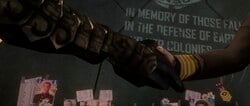
- Main article: Covenant remnants
With their government and capital annihilated, the High Prophet of Truth killed, and most of the loyalists' fleet destroyed by the Sangheili fleet above the Ark, the Covenant as an entity was completely destroyed.[6][7][8][9]
Following Truth's death at the hands of the Arbiter, the remaining San'Shyuum, their population reduced to near extinction,[80] went into hiding and few have been sighted by the Sangheili since.[81] Two Prophets in particular departed from the San'Shyuum flotilla and organized Jiralhanae forces to strike against the Sangheili on Rahnelo and Duraan. However, this faction was wiped out during their failed attempt to use a prototype Halo installation against Sanghelios.[82]
Most of the Jiralhanae continued to oppose the Sangheili until at least 2559,[81] although a few Jiralhanae chose to serve as laborers under their former masters.[83] The Banished, a Jiralhanae-led mercenary organization, amassed a considerable degree of power in the aftermath of the Covenant's destruction.[84]
While Thel 'Vadam succeeded in restoring an ancient pre-Covenant government known as the Swords of Sanghelios based on their homeworld, the Sangheili, having renounced the Great Journey, began to fight amongst their own ranks over the particulars of their faith. The Servants of the Abiding Truth, which had also existed before the Covenant, opposed the Swords while others formed their own splinter factions.[85] Many Sangheili separatist commanders sought to seize control of the hegemony's former military assets for themselves, many of them forming disparate fiefdoms self proclaiming to be a new “Covenant”.[86] Others retreated from active involvement in interstellar affairs, maintaining the ships and weaponry for defense of their own lands. With large portions of the former Covenant's infrastructure in shambles, intact ships in particular were considered a valuable commodity among the Sangheili.[87] While many former members of the hegemony discarded the Covenant's religion in favor of more pragmatic pursuits, others continued to adhere to the core tenets of their former religion, namely the worship of the Forerunners as gods.[88] One notable Sangheili-led splinter group that formed was Jul 'Mdama's Covenant, which was later bolstered by the addition of the Didact's Prometheans.[89][90] Jul 'Mdama was eventually killed during the Battle of Kamchatka and the remainder of his new Covenant fell to the Swords with the help of Fireteam Osiris during the Battle of Sunaion in 2558.[91] In November 2559, the UNSC and the Swords of Sangheilios encountered Nizat 'Kvarosee's Defenders of the Sanctum, a rogue group of ex-Covenant soldiers who had been exiled on Netherop in 2526. Trapped by an orbital mine shell and unaware of the war's end, they continued their fight with stranded UNSC forces led by Lieutenant Commander Amalea Petrov. The Swords of Sangheilios dismantled the mine shell and restored outside access to the planet, but Nizat had become too fanatical to accept Thel 'Vadam's offer of returning to Sangheilios. Aside from a Defenders of the Sanctum Silent Shadow Blademaster that defected to the Arbiter's side, Nizat and his forces were all wiped out.[92]
The rest of the former member races scattered and returned to their homeworlds. Many Kig-Yar returned to their ancient ways as raiders and traders,[93] and most Huragok were thought to have fled, though no one knew where.[94] Many members of the former Covenant also sought asylum on Earth, most notably in the city of Rio de Janeiro.[95]
A few surviving remnants of Truth's former fleet held out in the Anodyne Spirit for years after the war ended, miraculously surviving the faulty firing of Installation 08 from inside of the Forerunner ship.[17] Led by Prelate Dhas Bhasvod, these were soldiers who had been left behind to guard the keyship during the Battle of Installation 00, half of whom had tried to draw the UNSC away from their leader's position in the Citadel and had thus died in the firing of the Halo ring.[18] This remnant's survival was discovered when the Banished raided the keyship.[17] Subsequently, they became active participants in the Second Ark Conflict, allying themselves with a detachment of the Keepers of the One Freedom led by Dokab Castor in an effort to fire the Halo Array and cleanse the galaxy. Bhasvod's intention was to clear the galaxy of enemies so that the San'Shyuum could emerge from hiding. However, the attempt failed, leading to the destruction of Castor's detachment of Keepers and the retreat of Bhasvod to plan his next move.[18]
Government and politics[edit]
- Main article: Covenant laws
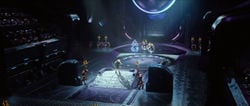
For the majority of its existence, the two ruling classes of the Covenant were the San'Shyuum and the Sangheili, though the former held greater sway over the Covenant due to their status as "the voice of the gods".[96] On the outbreak of the Great Schism, the Sangheili were cast out and the Jiralhanae replaced the Sangheili as the secondary ruling class. The Covenant had ten echelons of government,[citation needed] the highest echelon being the High Council, which was responsible for making all important decisions. Prior to the Great Schism, it was made up of over two hundred members of Sangheili commanders and San'Shyuum ministers,[97][98] and was ruled by the three San'Shyuum Hierarchs. These Hierarchs were the highest political and religious authority in the Covenant. For each new Age, three new Hierarchs were appointed; in order for them to usher in a new age and assume power, they must receive a blessing from the Oracle of High Charity.[98][99] This Oracle was a Forerunner artificial intelligence found within the Dreadnought which sat at the center of the capital. Until the events that led to the war against humanity, the Oracle had not spoken for over a millennia, so the ascension of the Hierarchs was steeped with political bribes, blackmail and manipulation of the San'Shyuum Philologist.[99][100]
The High Council consisted of San'Shyuum and Sangheili High Councilors, who were extremely important to the Covenant society. The High Council served as the central theocratic and decision-making body of the Covenant. In addition to the High Council, there are three other Councils: the High Council of Concordance, the Council of Deed and Doctrine, and the Council of Masters. The High Council of Concordance was responsible for the creation of the Ratification Parley and Writ of Union.[101] The Council of Masters was a controlling group within a Covenant fleet that dictated the needs of fleet and military forces.[102] Below the councils, numerous ministries exist within the Covenant government, each of which dictates a single, but important role within the governmental body of the Covenant. Each ministry was led by a San'Shyuum minister. A ministry's vice minister served as an aid for the minister,[103] while numerous senior and junior staffers served under both individuals.[104]
In truth, however, the San'Shyuum and Sangheili had an uneasy coexistence, and political infighting was very common behind the scenes. This stemmed from as far back as the Writ of Union, when the Sangheili begrudgingly accepted the alliance with the San'Shyuum, despite many Sangheili innately knowing the treaty technically meant their species' surrender to the Prophets.[105] Over the Covenant's history, high-ranked San'Shyuum manipulated the Sangheili and sought to keep them without strong leaders of their own in order to keep them subservient to the Prophets' rule. The most prominent example of this is the San'Shyuum's perversion of the traditional Sangheili title of Arbiter from a position of great power and honor into a badge of shame, and a means by which to silence those they felt might challenge the Hierarchs' power.[106] In other cases where appointing an Arbiter may have been inconvenient, Sangheili commanders deemed to wield too much influence with their kind were quietly exiled to the fringe worlds of the Covenant empire; an example of this was the fate of Imperial Admiral Xytan 'Jar Wattinree.[11] The hidden distrust between the two species became an all-out war during the Great Schism.
| ||||||||||||||
Religion and culture[edit]
- Main article: Covenant religion
Covenant society had a distinct caste-based societal system with a strong theocratic underpinning.[96][107] In the Covenant caste system, one's position in the hierarchy was dictated largely by their species. With the San'Shyuum and Sangheili leading the Covenant's religiopolitical and military affairs, respectively, most of the other species served either as warriors or manual labor.
The Covenant's culture and religion was based solely on the worship and reverence of the Forerunners. Long ago, the San'Shyuum managed to decipher some of the data stored on terminals aboard the Forerunner Dreadnought, thanks to the Forerunners' robust translation systems. However, even then they were unable to fully comprehend the subtle meanings of many Forerunner glyphs.[96] The San'Shyuum incorrectly interpreted the activation of the Halo Array as a means of transcending mortality, a process they came to call the "Great Journey". They did not understand that the Array had been designed to eradicate the Flood, specifically by triggering a galactic holocaust and killing all sentient life within the galaxy. They arrived at the conclusion that the Forerunners had ascended to godhood and left other species of the galaxy to their fates.[96] Because of this, the Covenant devoted itself to searching for and recovering of Forerunner artifacts. At several points in the Covenant's history, this desire to reclaim Forerunner technology has resulted in the hegemony declaring war against non-compliant species, the most recent instance being their war against humanity. In Covenant society, personal vendettas are not tolerated,[108] although many conflicts in the Covenant's past have been sparked by vendettas.[109]
The Covenant were always eager to add new species to the faith,[110] so long as they pledged allegiance to the San'Shyuum as their supreme leaders and the Great Journey as their religion.[111] Client races were however known to have portions of their culture suppressed, as was the case with the Sangheili and their martial practice Shrwssha'wash.[112]
Measurements[edit]
The Covenant created its own means of connoting time, comprised of "Ages." The Covenant's history is broken up into multiple occurrences of seven types of Age, each representing the predominant theme that occurred during those periods of time. These ages do not necessarily follow one another in order, nor are they equal in quantity. As an example, there were significantly more Ages of Conflict and Doubt than Reclamation. Each Age is further broken into what is called cycles. A cycle is the Covenant version of a day and it represents one artificial day on High Charity. A cycle contains approximately 265 units, which if translated into human time is roughly one hour of time on Earth.[51]
Economy[edit]
The Covenant used commerce as a form of economy. As the Covenant's cohesion was grounded in its belief of working to obtain and sharing Forerunner technology, every member of the Covenant was given a form of employment[26] or a service to fulfill in exchange for goods and necessities. In the Covenant's culture, service for salvation was the moral motivation for the entire population.[113] Despite this, there was discrimination within the Covenant: The lesser species were treated as second-class citizens with little political or representative voice or power.
Military[edit]
- Main article: Covenant military
The Covenant maintained pervasive armed forces to enforce order, conduct atmospheric and space combat operations, and generally carry out the Covenant's will throughout space. Unlike the UNSC, however, the Covenant lacked a single unified military arm, and its armed forces were instead comprised of several organizations overseen by various ministerial bodies.[114] The Covenant's military capability was most overtly embodied in its spaceborne fleets, ranging from small battle groups to entire armadas. Various task-based groups served under these fleets, including the occupational ground forces and the Special Warfare Group, which contained the Special Operations Division.
Covenant troops were heavily segregated by species, with the Sangheili originally serving as their leadership caste. In the field, Unggoy were deployed as cannon fodder files, Kig-Yar were used as support and snipers, and Sangheili were commanders and fought in warrior lances. Weapons and technology were restricted by species and rank; only Sangheili received personal energy shields and energy swords, only Kig-Yar received point defense gauntlets, and Unggoy only received basic weapons and armor depending by rank. The reasons for these restrictions were often cultural; for instance, Sangheili viewed wielding shield gauntlets as dishonorable and that "lesser species" did not deserve their privileged weapons. This discrimination among the Covenant military was centuries old, but the dynamic was occasionally changed by violent rebellion. The Unggoy Rebellion caused Sangheili to mix their units with Unggoy and give them better training. Likewise, the Great Schism put Jiralhanae in command of former Sangheili units, gave them personal shielded armor, and made their tribal packs a prominent military unit.
Technology[edit]
Covenant technology has been often described as more imitative rather than innovative,[115][116] as they are based largely on mimicry and reverse-engineering of the leftover Forerunner artifacts they have discovered. Such examples are their exceedingly accurate slipspace navigation, near-instantaneous interstellar communication, the manipulation of extremely high volumes of plasma energy from sublight travel, short-range translocation of matter, a great influence over gravity and repulsor-based technologies,[4] and man-portable application of energy manipulation.[117] Much of the Covenant's rapid technological advancement was made by stripping Forerunner shield worlds of useful material early in the hegemony's existence.[118] The Covenant also gained many improvements in weapons and spacecraft technology thanks to the technologies found in the Ten Cities of Edification on Zhoist.[119] In the Covenant, ecclesiastical authorities ultimately oversee even the most trivial modifications to existing designs. Improvements or alterations require layers of bureaucracy to navigate and often take decades to gain approval from the Prophets.[120] As a result, some designs, technology and vessels have remained in service for many centuries with little alteration to their base design.
Although innovation is not one of the Covenant's strong suits, the Covenant has shown considerable advancement in bridging the technological gap with newly-encountered species. For example, in the first encounter of the Human-Covenant War, the Covenant learned of the humans' computer systems and of their language from salvaging human-computer and network components from destroyed human ships.[115] This knowledge benefited the Covenant greatly in understanding the humans' military operation, to the extent that the UNSC enacted the Cole Protocol to deter the Covenant from finding human colony worlds and Earth. In another scenario, during the preliminary of the Fall of Reach, the Covenant crippled Reach's telecommunication network to prevent the colony world from contacting reinforcements and placed numerous teleportation spires to deploy its forces without having to face directly with the planet's orbital defenses.[121]
The Covenant culture has religious taboos that prevent them from fully exploring what the Forerunners employed to create that technology.[122] In some cases, Covenant technology imitates the effects of the Forerunner technology it is based on while the underlying science remains largely beyond their grasp. An example of this is the Covenant's predominant use of plasma in their weapons rather than the more exotic hard light and particle streams utilized by the Forerunners,[123] or the Covenant's pinch fusion reactors in contrast to the Forerunners' ability to harness vacuum energy. The Covenant also never developed advanced AI technology due to their religious doctrine; they believed that a powerful AI had once betrayed the Forerunners, and as such they had a ban on actually sapient machine intelligences. The few Covenant AIs that have been encountered include an AI that was stationed aboard the Ascendant Justice and destroyed by Cortana,[124] one based on the Truth and Reconciliation, as well as the Seeker, sent to infiltrate UNSC systems and alert the Covenant to the location of Earth. Cortana's copy also referenced several AIs being present in the Unyielding Hierophant's systems when the Spartans infiltrated the station.[125]
The Forerunners' ubiquitous hard light technology was never completely understood by the Covenant,[126] although they managed to develop at least one hard light-based device in the Prelates' shield gauntlets.[127] However, they did possess advanced energy field shaping and complex holography. This technology was advanced enough to produce realistic and tangible simulacra of physical objects. The holo-drone, for example, generates an independent decoy of the operator capable of inflicting physical harm on the enemy despite its incorporeal nature;[128] the T-27 holographic decoy is a more basic variation of this concept. The Covenant applied forcefield technology in a broad range of roles, from the San'Shyuum's spherical stasis fields to contain beverages such as tea[103] to the enormous fields used to hold in High Charity's atmosphere while the holy city's exterior dome was still under construction.[129][130]
Covenant architecture is known for its curved, organic and sophisticated looking style, primarily based on the aesthetic tastes of the San'Shyuum with loose connections with Sangheili designs. Even military vehicles were fashioned after San'Shyuum aesthetics early on, incorporating many of the Sangheili designs over the Covenant's history.[4] Constructed of distinctive purple, blue or white metal, these colors are the main focus of Covenant design and distributed throughout their starships, vehicles, and weapons. The materials they use are unknown to the UNSC but are very strong and resilient.
The Covenant possess a variety of medical technologies, including the life-extension treatments the San'Shyuum have used for some time.[80] The San'Shyuum Prelates were also known to have used a form of biological augmentation to greatly enhance their normally frail bodies.[4] As an idiosyncrasy of their warrior culture, the Sangheili view the notion of doctors as dishonorable.[131] However, as injuries are an inevitable byproduct of combat, the Covenant military still employs a number of medical amenities. Among these are automated surgery suites, featured on Covenant ships to treat wounds received in combat,[132] and magnetic splints which are used to hold broken bones in place. The Huragok (both the common Builder kind and the Lifeworker variation) also provided medical aid in addition to their primary role of maintaining Covenant technology.[94][133] It was known that even after suffering major injuries, after only minutes of treatment the patient would feel back to normal without as much as a scar to show for it.[133][134]
Some novel technologies that were never widely adopted could be seen in San'shyuum headgear.[135]
Spacecraft[edit]
- Main article: Covenant starship
For the Covenant species, interstellar travel was made easy due to the reverse-engineered technology. Like humans, Covenant vessels can enter Slipstream space and travel significantly faster than light. However, the Covenant equivalent of the Shaw-Fujikawa Translight Engine is far more efficient and reliable, relying on a series of "micro-jumps" to maneuver through the slipstream. Covenant vessels do not suffer the "temporal fluidity" of faster-than-light to such a degree as human vessels, arriving at the precise time and location that they intend. However, after a slipspace jump Covenant vessels generally experience a temporary power outage, leaving the vessel vulnerable to attack. As a result, Covenant battlegroups are much more efficient when acting as a coordinated group, and can strike more quickly and decisively.[122]
Covenant starships use repulsor engines for propulsion in space, rather than the more traditional fusion engines utilized by humanity or the advanced reaction drives used by Forerunners.[136] Covenant drive systems seem to be propelled by an unusual combination of gravity "waves" and some form of highly reactive plasma displacement, but the actual means and method of propulsion is currently beyond human understanding.[122] Both starships and ground vehicles are equipped with various forms of anti-gravity technology, allowing ships to hover easily inside an atmosphere and allowing frictionless movement of vehicles across terrain. The Covenant are also able to manipulate exceedingly large amounts of plasma energy by recycling detritus from sublight travel.[4]
Covenant manufacturing plants, such as the Assembly Forges, employ highly sophisticated manufacturing methods which allow them considerable freedom in the design of individual ships. While all Covenant vessels fall into one of several universal design patterns, every ship can be custom-made to fit the preferences of individual shipbuilders and fleet masters.[137]
Weaponry[edit]
Most of the Covenant arsenal consists of plasma-based directed energy weapons, but the Covenant are known to also utilize pulse lasers, particle beam weapons, antimatter explosives and even chemical crystal-based weapons. Interestingly, Covenant weapon designs seem to defy known laws of mechanics; there is typically no form of radiative, physical, or electrical contact between the firing mechanism and "trigger" of a weapon. For these and other reasons, the workings of Covenant weaponry is generally beyond the comprehension of UNSC scientists.[138]
Plasma weapons typically use a rechargeable power cell to provide power to their internal components. Covenant plasma weapons are effective but crude, and most automatic-fire plasma weapons are prone to overheating. To compensate, most weapons have vents that open to discharge excess heat and plasma when they overheat, although such weapons are rendered inoperable as the excess heat is dissipated. Once the energy of the plasma weapon is depleted, it must be recharged or discarded. To date, the means by which plasma weapons can be recharged is still unknown to UNSC forces. The most remarkable handheld plasma projectile weapons are a variety of plasma pistol (by far the most widely used small arm) and the plasma rifle. Notable vehicular plasma weapons include various cannons and mortars, while warships are armed primarily with plasma torpedo turrets.
Though rarer, the Covenant occasionally use projectile weapons, the most common of these being unconventional crystal-based weapons such as the Type-33 Needler and the Gadulo-pattern needle rifle. These weapons appear to use some type of chemical that forms a hard, razor-sharp crystal on contact with the atmosphere; the material is mined on Suban, one of Sanghelios' moons. Certain medium- to long-range weapons fire these crystals at high speeds, allowing them to strike targets accurately at long distance. Other mid-range weapons fire them at very slow speeds, and through unknown means "steer" them towards enemy targets. Needles fired in either of these ways will penetrate the flesh or armor of a target, and several seconds after coming to rest will explode into thousands of tiny, sharp fragments that can maim or cripple a target. When a certain number of needles have penetrated the same target, they will detonate simultaneously, producing a much larger explosion that kills the target instantly.
With the introduction of the Jiralhanae as a major military caste within the Covenant, their weapons found widespread use among their own kind. Utilizing crude, spike-like metal projectiles in place of plasma; conventional explosives and incendiaries; and sharp blades, they are more primitive, yet in many cases more dangerous -fitting, considering the nature of their creators. Brute weapons include the Spiker carbine, the Mauler shotgun-pistol, and the Brute Shot grenade launcher.
The Covenant employ melee weapons in addition to their already fearsome arsenal. The best known is the energy sword, used solely by the Sangheili. Creating a double blade of superheated plasma, it has both ceremonial and martial value to Sangheili warriors and its possession is closely monitored. Another is the Jiralhanae gravity hammer, which seems to be the Brutes' cultural equivalent to the energy sword. However, rather than using a blade of plasma, it generates a gravitational field which can cause tremendous damage within a several-meter radius.
Vehicles[edit]
Covenant vehicles use advanced anti-gravity technology for propulsion, and are armed with directed-energy weaponry of varying potency. Though often faster than their UNSC counterparts, Covenant vehicles are more unstable over uneven terrain where the sudden changes affect handling. All Covenant vehicles (except for Jiralhanae vehicles) and structures are made from a purple or dark blue type of metal, said to be much more advanced than any alloy known to humans, and all Covenant vehicles are nicknamed after some kind of supernatural entity by the UNSC, except for Excavators. Recently, Jiralhanae vehicles and technology have been incorporated into the Covenant's arsenal. Though more primitive, they serve the Jiralhanae's need for power. Jiralhanae vehicles are not named after spiritual entities, and rather than being a series of Covenant vehicles are regarded as native Jiralhanae technology.
Sphere of influence[edit]
Species[edit]
- "Most of those we encountered in our search were compelled to join our Union. To take part in a movement that promised freedom for allegiance, salvation for service!"
- — The Prophet of Regret[139]
The Covenant is made up of a variety of alien species from different parts of the galaxy. Organized into a caste system by the San'Shyuum, the different species of the Covenant are united by their blind faith in the promise of the Great Journey.[140] In addition to the core member species listed below, there are a number of peripheral client species—known collectively as the Covenant fringe—that were never fully integrated into the Covenant, though some provided various advantages to the hegemony.[141]
However, not every species encountered by the Covenant was deemed worthy of even providing them with conversion in exchange for services, though their worlds still fell under Covenant control. These species were poorly documented by the Sangheili and have not been contacted nor cataloged by the Unified Earth Government, even after the Covenant's fall.[142]
| Image | Species | Description |
|---|---|---|
| San'Shyuum | The highest political caste in the Covenant, the San'Shyuum, or "Prophets" as they are known by humans, led the Covenant and exerted complete control over all religious and political affairs. Though physically weak, Prophets wielded power through absolute command of the Covenant and scavenged Forerunner technology, leaving the task of conquest to the Sangheili and the other races. Along with the Sangheili, the San'Shyuum had members on the Covenant High Council. | |
| Sangheili | The Sangheili, or "Elites" as they are known by humans, served as the military leaders of the Covenant before the Great Schism. Along with the San'Shyuum, the Sangheili were one of the two founding races of the Covenant, and were the only race other than the San'Shyuum to have members on the High Council. The Sangheili are the only race within the Covenant permitted to build and command starships within the Covenant, though the crews are always composed of a mix of races.[143] | |
| Jiralhanae | The Jiralhanae, or "Brutes" as they are known by humans, were the most recent addition to the Covenant, and served as soldiers and bodyguards within the Covenant military until their promotion during the Great Schism. Although initially of low status within the hierarchy, the Jiralhanae gained greater prominence within the Covenant prior to the Great Schism, with the Chieftain of the Jiralhanae, Tartarus, answering to the Hierarchs themselves. After the Sangheili were deposed, the Jiralhanae were given command of the Covenant military. | |
| Lekgolo | The Lekgolo are a race of worm-like creatures that can combine to form large, intelligent assemblages called Mgalekgolo, known by humans as "Hunters". Clad in nearly impenetrable armor and armed with their trademark Assault Cannon, they served as the Covenant's heaviest ground troops. Many of these creatures joined the Sangheili during the Great Schism. | |
| Unggoy | Hailing from Balaho, the Unggoy, or "Grunts" as they are known by humans, were the most common and low-ranking caste of the Covenant. They breathe methane gas, and thus must wear a large tank on their back full of methane to survive on other planets. Relations between the Unggoy and the Kig-Yar are strained in the best of times. Many of these creatures joined the Sangheili and the Jiralhanae during the Great Schism. | |
| Kig-Yar | The Kig-Yar, or "Jackals" or "Skirmishers" as they are known by humans,[108] were the scouts and marksmen of the Covenant military due to their superior senses. They were among the lower Covenant castes and are about 6'2" tall. | |
| Yanme'e | The Yanme'e, or "Drones" as they are known by humans, are flying, insectoid species that served almost exclusively as engineers in the Covenant Empire. They were eventually replaced by the Huragok, and were used as aerial combatants against the UNSC, who are inexperienced at fighting airborne infantry. | |
| Huragok | The Huragok, or "Engineers" as they are known by the humans, are an artificial species created by the Forerunners. They only conversed with the San'Shyuum or individuals who learn their language.[144] The Huragok performed the physical labor of excavating and gathering data on Forerunner artifacts. In military terms, they were generally a non-militant race. Many of the Huragok joined the Sangheili during the Great Schism. |
Worlds[edit]
- Main article: Covenant worlds
The Covenant's expansive interstellar empire was based within the Orion Arm of the Milky Way galaxy,[141][145][146][Note 1] with the mobile holy city High Charity as their capital.[4] At the height of its power, the Covenant encompassed thousands of systems. Befitting its vastness, the governance of the Covenant's interstellar dominion was highly complex; occasionally worlds or entire sub-domains vanished from the records maintained at High Charity, only for contact to be re-established decades later. The High Council was responsible for the administration of these interstellar territories, assigning tithes and levies, and allocating resources across the numerous member worlds.[147] San'Shyuum governors handled administrative duties on a local scale; most of them joined the rest of the species on their mass exodus during the Great Schism.[148]
Some species, such as the Kig-Yar and Lekgolo, had created colonies of their own before their incorporation into the Covenant. These worlds would be absorbed into the empire after the species joined the Covenant. Covenant space would grow to include new worlds as the hegemony expanded throughout the spiral arm, and even Forerunner installations were settled by the Covenant. Despite the massive size of the empire, the Covenant would generally leave a newly discovered world untouched, unless the world held religious or practical significance. Base worlds established by the Sangheili were considered the Covenant's primary worlds.[4] Since the incorporation of the Jiralhanae, the San'Shyuum settled them on resource-rich worlds to guard them from anyone seeking to claim them for themselves, although the Jiralhanae lacked the ability to mine the resources themselves.[149]
After the dissolution of the Covenant and the exodus of the local San'Shyuum governors,[148] many of the Covenant's colonies fell under the control of the hegemony's various splinter factions, while others were claimed by unaffiliated members of the Covenant client species, especially the Sangheili or Kig-Yar. Some worlds were contested between species and governments,[86] while Joint Occupation Zones were established between the Unified Earth Government and the Swords of Sanghelios to allow colonies to be administrated by multiple species.[150]
Non-canon and dubious canon appearances[edit]
Odd One Out[edit]
| This article contains information about a non-canonical subject that, while official, is not part of the established Halo universe. |
The Covenant is an empire consisting of at least the San'Shyuum and Jiralhanae at war with humanity.[151]
Fracture: Blackguard[edit]
| This article contains information from the Blackguard Fractures universe, and is not a part of the established Halo canon. To learn more information about the Blackguard universe, see its article. |
The Covenant hordes are enemies of humanity.[152]
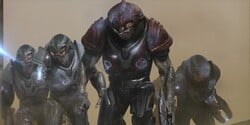
Silver Timeline[edit]
| This article contains information about the Silver Timeline, and is not a part of the established Halo canon. |
- Main article: Silver Timeline
The Covenant is a mutispecies religious hegemony attempting to eradicate humanity and locate Halo.[153] The Covenant's incorporated species include the Sangheili,[154] San'Shyuum,[155] Jiralhanae, Unggoy, Kig-Yar,[156] and Lekgolo.[157] High Charity served as the mobile capital-ship for the Covenant.[158] One of the holiest sites in the Covenant is Raas Kkhotskha in the Aspero system.[159]
Fracture: Entrenched[edit]
| This article contains information from the Entrenched Fractures universe, and is not a part of the established Halo canon. To learn more information about the Entrenched universe, see its article. |
The Covenant is a zealous organization of humans mutated by radiation at war with the Unified Nations Security Confederation.[160]
Trivia[edit]
| Language | Equivalent |
|---|---|
French |
Les Covenants in most media. L'Alliance Covenante in most media. |
Spanish |
El Pacto in Halo: Combat Evolved and Halo: Combat Evolved Anniversary. |
German |
Die Allianz |
- Covenant is a major city in Bungie's Myth series; it is home to the Total Codex, a magical book that lists the fate of every being that will ever be born. Bungie later considered Covenant as a potential title for Halo: Combat Evolved. Paul Russel joked that it "... sound[ed] like a bad 80's hair band."[161]
- The Biblical Ark of the Covenant represented the will of God, in connection with the quote: "Your destruction is the will of the Gods...and we are their instrument." This references the Covenant's belief they carry through the will of their gods, the Forerunners.
Gallery[edit]
A hologram of multiple Covenant species in Halo: Fall of Reach.
The Sangheili scripture for the word Covenant. First seen in a Halo: Fleet Battles promo and later in Sunaion. The image is a Photoshop recreation.
The Sangheili sigils for the Covenant on a replica of the Ket-pattern battlecruiser Truth and Reconciliation.
Sangheili, the initial leaders of the Covenant military.
List of appearances[edit]
Notes[edit]
- ^ The Halo Waypoint article for the Covenant claims that the empire "dominated much of the galaxy". However, most sources (including Halo: Warfleet and several Waypoint articles) agree that the Covenant Empire was based out in the Orion Arm.
Sources[edit]
- ^ a b Halo Waypoint: High Council
- ^ Halo Encyclopedia (2022 edition), page 229
- ^ a b Halo Encyclopedia (2022 edition), page 192
- ^ a b c d e f g Halo Waypoint - Universe, Factions, Covenant (Retrieved on Jun 1, 2020) [local archive] [external archive]
- ^ a b c d Halo Encyclopedia (2009 edition), page 30
- ^ a b c d Halo 3 Epilogue "But you did it. Truth and the Covenant. The Flood. It's Finished." Cortana
- ^ a b Halo: The Essential Visual Guide, page 59: "...and with the help of the Arbiter, forged a tentative agreement with the humans that resulted in the destruction of the Covenant."
- ^ a b Halo Wars 2 GAMEPLAY - E3 2016 Interview (Interview with Kevin Grace) "The Covenant are dead"
- ^ a b c Halo Waypoint: Covenant "Dissolution: 2552 CE"
- ^ Halo 2 level Gravemind
- ^ a b Halo: Ghosts of Onyx, page 239
- ^ Halo: First Strike, page 269 (2003 edition); page 323 (2010 edition)
- ^ Halo: First Strike, page 338 (2003 edition); page 405 (2010 edition)
- ^ Halo 2: The Official Strategy Guide page 40
- ^ Planetary Operations Manual Covenant - Overview
- ^ Canon Fodder - "The resulting conflict would be called the Great Schism, and it would divide the Covenant into two, ultimately forcing the Sangheili out."
- ^ a b c Halo: Shadows of Reach: Adjunct - Sacrifice
- ^ a b c d Halo: Divine Wind
- ^ Halo 4 Interactive Guide
- ^ Halo Waypoint: 'Canon Fodder' - Lore of the Rings - "many others had become enamored with the idea of bringing the Covenant empire under complete Sangheili rule, quickly scrambling to grab power wherever they could."
- ^ Halo: Glasslands, page 20
- ^ Halo: Escalation Issue 5 "What does it mean to be 'Covenant' today? A hundred warlords claim they rule the Covenant, but each of them leads only a small faction."
- ^ Halo: Contact Harvest page 196-197
- ^ Halo 3, Bestiarum
- ^ a b Halo Encyclopedia (2009 edition) page 114
- ^ a b Halo: Contact Harvest page 146
- ^ a b c d e Halo: Contact Harvest page 147
- ^ Halo Mythos, page 39
- ^ a b c Halo: Broken Circle, chapter 15
- ^ a b Halo: Broken Circle, chapter 1
- ^ a b Halo Encyclopedia (2022 edition), page 192
- ^ Halo Waypoint, Canon Fodder - Eklund's Ensemble (Retrieved on Jul 20, 2022) [archive]
- ^ Halo: Broken Circle, Book cover
- ^ Halo Waypoint - Universe, Factions, Swords of Sanghelios (Retrieved on Jun 1, 2020) [local archive] [external archive]
- ^ Halo Encyclopedia (2022 edition), page 226
- ^ Halo Waypoint: Catalog Interaction (post 2988575)
- ^ Halo Encyclopedia: The Definitive Guide to the Halo Universe, page 114
- ^ Halo: Contact Harvest, chapter 16
- ^ Halo Encyclopedia (2022 edition), page 265
- ^ Halo Encyclopedia: The Definitive Guide to the Halo Universe, pages 148-149
- ^ Halo Encyclopedia: The Definitive Guide to the Halo Universe, page 155
- ^ Halo: The Cole Protocol, page 157
- ^ Halo Encyclopedia: The Definitive Guide to the Halo Universe, page 121
- ^ Halo Encyclopedia (2009 edition) - Chapter Four: The Covenant - The History of the Covenant, page 115 (2009 edition); 121 (2011 edition)
- ^ Halo 3: Limited Edition, Bestiarum
- ^ Halo Encyclopedia (2009 edition) - Chapter One: Timeline, Galactic Rebirth and the Covenant - Human Expansion and Colonization, page 32
- ^ Halo 2: Anniversary, Terminals: Covenant Record: Unggoy Rebellion
- ^ Halo Encyclopedia (2022 edition), page 245
- ^ Halo Legends, episode The Duel
- ^ Halo Encyclopedia (2022 edition), page 289
- ^ a b Halo Encyclopedia (2009 edition) page 31
- ^ Halo: Contact Harvest, pages 150-152
- ^ Halo Encyclopedia: The Definitive Guide to the Halo Universe, page 115
- ^ Halo Encyclopedia (2022 edition), page 254
- ^ Halo: The Fall of Reach, pages 96-98
- ^ Halo: Contact Harvest, page 275
- ^ Halo: Contact Harvest, page 385
- ^ Halo: Contact Harvest page 143
- ^ Halo Wars Timeline Events, Excerpt from The Punished Deeds, Vol. III
- ^ Halo Encyclopedia (2022 edition), page 254
- ^ a b Halo 2, Conversations from the Universe
- ^ Halo: Ghosts of Onyx, page 349
- ^ Halo Wars 2, campaign level A New Enemy
- ^ Halo: Combat Evolved, campaign level The Pillar of Autumn
- ^ Halo: Combat Evolved, campaign level The Maw
- ^ Halo 2, campaign level The Heretic
- ^ Halo 2, campaign level The Arbiter
- ^ Halo 2, campaign level Delta Halo
- ^ a b c Halo 2, campaign level The Great Journey
- ^ Halo 2, campaign level Sacred Icon
- ^ Halo Wars Timeline Events, Edict of the Office of the High Prophet of Truth
- ^ Halo 2, campaign level Uprising
- ^ Halo 2, campaign level Gravemind
- ^ Halo: Ghosts of Onyx, page 378
- ^ Halo 3, campaign level Tsavo Highway
- ^ Halo 3, campaign level The Storm
- ^ Halo 3, campaign level Floodgate
- ^ Halo 3, campaign level The Ark
- ^ Halo 3, campaign level The Covenant
- ^ a b Bestiarum San'Shyuum section
- ^ a b Halo: Evolutions The Return page 506
- ^ Halo: Shadow of Intent
- ^ Halo: Glasslands, page 136
- ^ YouTube: Halo Wars 2 E3 Trailer BTS
- ^ Halo: Glasslands, page 20
- ^ a b Halo: Escalation, Issue #5
- ^ Halo Waypoint: The Halo Bulletin: 4.16.14
- ^ Halo: The Thursday War
- ^ Halo 4
- ^ Halo: Escalation
- ^ Halo 5: Guardians, campaign level Battle of Sunaion
- ^ Halo: Outcasts
- ^ Halo: Glasslands, page 247
- ^ a b Halo: Glasslands, page 256
- ^ Spartan Ops, S1E1 Departure
- ^ a b c d Halo Encyclopedia (2009 edition) page 112
- ^ Halo Encyclopedia: The Definitive Guide to the Halo Universe page 345
- ^ a b Halo: Contact Harvest page 271
- ^ a b Halo Encyclopedia: The Definitive Guide to the Halo Universe page 119
- ^ Halo: Contact Harvest page 274
- ^ Halo 2: Original Soundtrack, Volume 1
- ^ Halo: The Cole Protocol, page 144
- ^ a b Halo: Contact Harvest, page 154
- ^ Halo: Contact Harvest, page 149
- ^ Halo: Broken Circle, page 48
- ^ Halo 2: Anniversary - Terminals
- ^ Bungie.net: Covenant Primer: The Best of the Bestiary
- ^ a b Halo: The Flood page 95
- ^ Halo: Contact Harvest page 150
- ^ Halo: Contact Harvest page 51
- ^ Halo: Contact Harvest page 50
- ^ Halo Infinite, Armor Hall: Skullbearer Trophy - Shoulder Description "The Prophets suppressed many Sangheili martial practices they deemed distasteful, including Shrwssha'wash: a tradition of displaying the skulls of particularly recalcitrant foes after their defeat and ritual dismemberment."
- ^ Halo 2 dialogue, Prophet of Regret
- ^ Halo: Fleet Battles core rulebook, page 7
- ^ a b Halo: The Fall of Reach, page 241 ("The Covenant’s science is imitative rather then innovative, a by-product of this societal ‘absorption,’" Dr. Halsey continued. "This is not to say that they are lacking intelligence, however. During our first encounter, they gathered computer and network components from our destroyed ships... and they learned at an astonishing pace."); 2010 edition, page 275
- ^ Halo: First Strike, page 87 (Cortana: "The Covenant were imitative, not innovative; at least, that's what all the ONI intelligence gathered on the collection of alien races had reported. She had thought this was an exaggeration, propaganda to bolster human morale.")
- ^ Bestiarum: Technological Achievement Tiers
- ^ Halo Wars, Excerpt from The Punished Deeds, Vol. III
- ^ Halo: Silent Storm, Chapter 26
- ^ Halo Wars 2 - Phoenix Logs - Wraith Invader
- ^ Halo: Reach
- ^ a b c Halo Encyclopedia (2009 edition) page 224
- ^ Halo 4: The Essential Visual Guide, page 103
- ^ Halo: First Strike page 170
- ^ Halo: First Strike page 320
- ^ Halo: Evolutions - Essential Tales of the Halo Universe Volume II, "Wages of Sin", page 291
- ^ Halo: Shadow of Intent, page ??
- ^ Halo 2, campaign level The Oracle
- ^ Halo: Broken Circle, page 20
- ^ Halo 2: Anniversary, Terminal 8
- ^ Halo: The Cole Protocol, page 143
- ^ Halo: Contact Harvest, page 259
- ^ a b Halo: Hunters in the Dark, page 152
- ^ Halo: Hunters in the Dark, page 349
- ^ Halo Infinite, Armor Hall: Sovereign Spear - Helmet Description "The ceremonial gear of Prophet suzerains, cardinals, and heralds is a surprising source of novel Covenant technologies that never found wider adoption."
- ^ Halo: Ghosts of Onyx, page 331
- ^ Halo Waypoint, Canon Fodder - Have S'Moa (Retrieved on Jan 16, 2021) [local archive] [external archive]
- ^ Dr. Halsey's personal journal, Needler analysis
- ^ Halo 2, campaign level Regret
- ^ Halo Encyclopedia (2009 edition) page 14
- ^ a b Halo Waypoint - Universe, Characters, Axl (Retrieved on Jan 19, 2021) [local archive] [external archive]
- ^ Halo Waypoint - News, Canon Fodder, Bulkhead Banter (Issue 66) (Retrieved on Jan 16, 2021) [local archive] [external archive]
- ^ Sybex Halo PC Guide page 48
- ^ Halo: Contact Harvest, page 55
- ^ Halo: Warfleet, p. 12-13
- ^ Halo Waypoint - Universe, Species, San'Shyuum (Retrieved on Jun 1, 2020) [local archive] [external archive]
- ^ Halo: Warfleet, p. 52
- ^ a b Halo: Warfleet, p. 54
- ^ Halo: Escalation, Issue #1
- ^ Halo: Fractures, "Oasis"
- ^ Halo Legends - Odd One Out
- ^ Halo 3, Blackguard Margrave chest armor permutation
- ^ Halo: The Television Series, episode Reckoning
- ^ Halo: The Television Series, episode Contact
- ^ Halo: The Television Series, episode Unbound
- ^ Halo: The Television Series, episode Reckoning
- ^ Halo: The Television Series, episode Emergence
- ^ Halo: The Series, Dr. Catherine Halsey's Computer (Retrieved on Mar 25, 2022) [local archive] [external archive]
- ^ The Making of Halo The Series: Hope, Heroism, Humanity, page 150-151
- ^ Halo Waypoint, STORY SHARD: THE LAST SKY MARSHAL (Retrieved on Jun 15, 2022) [archive]
- ^ Halo 3 Legendary Edition special features disk
External links[edit]


